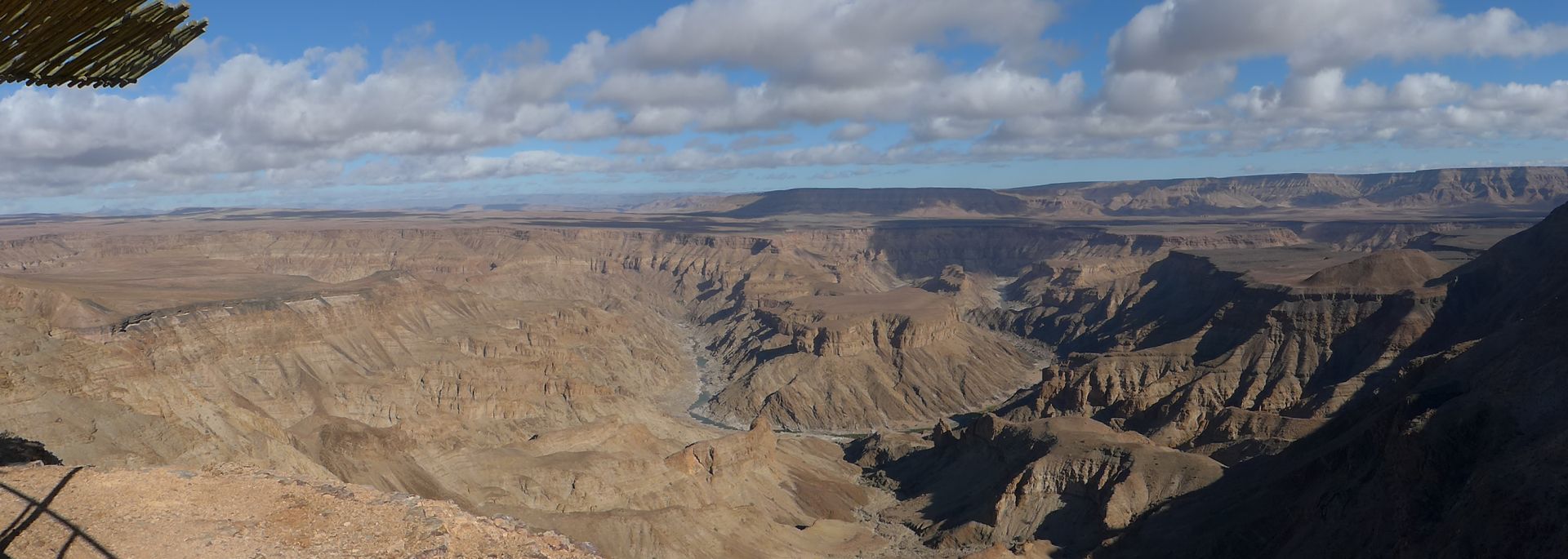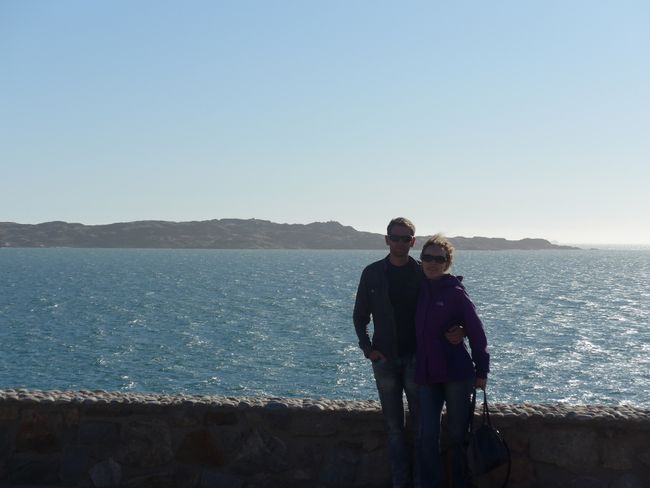Akureyri, Iceland: Waterfall of the Gods and Midge Lake (with the AIDAaura to Greenland and Iceland 5)
Wotae: 30.07.2022
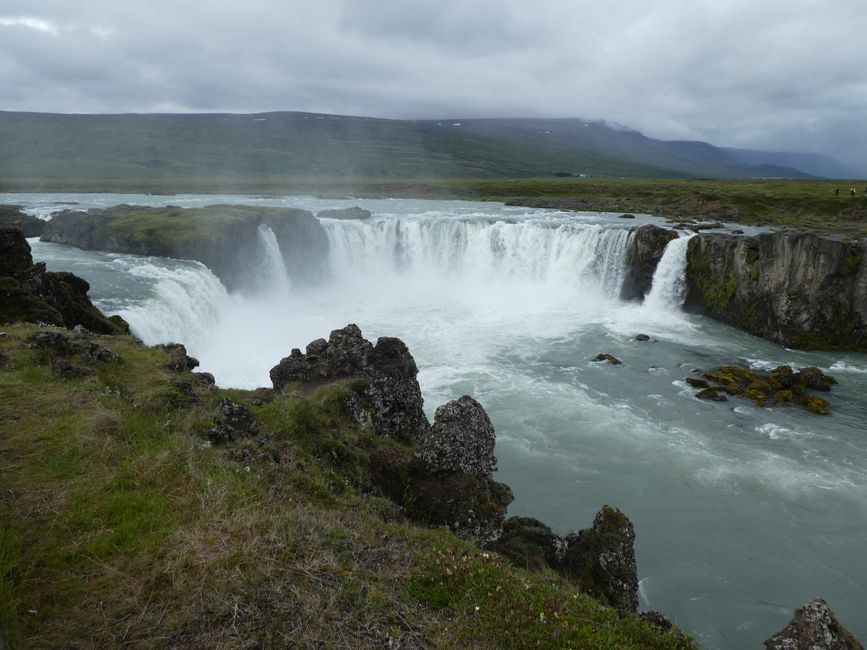
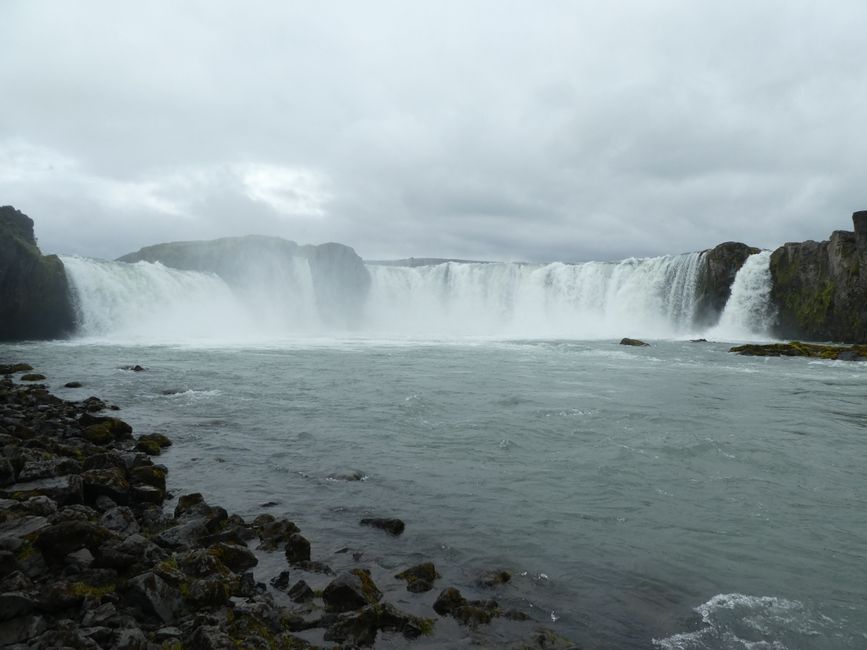
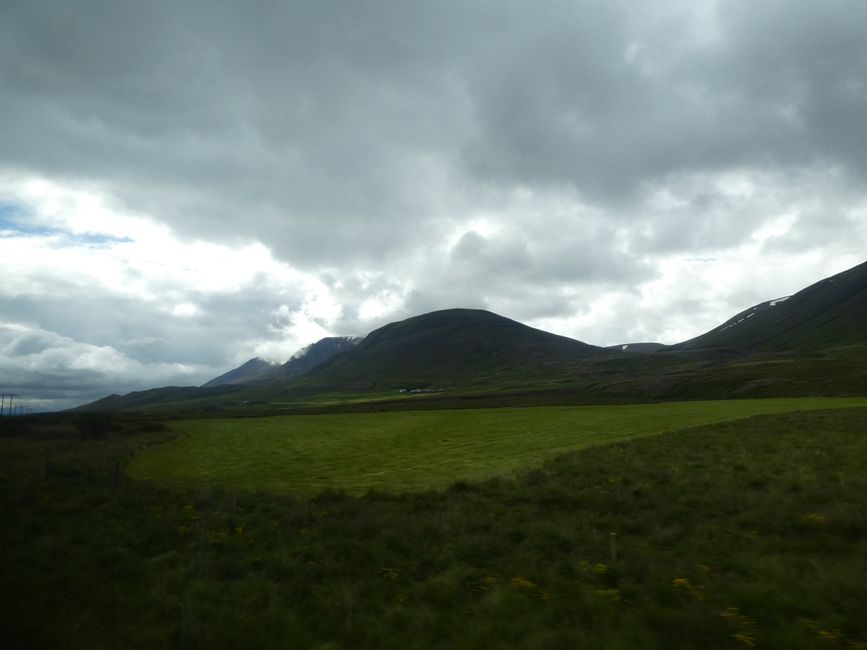
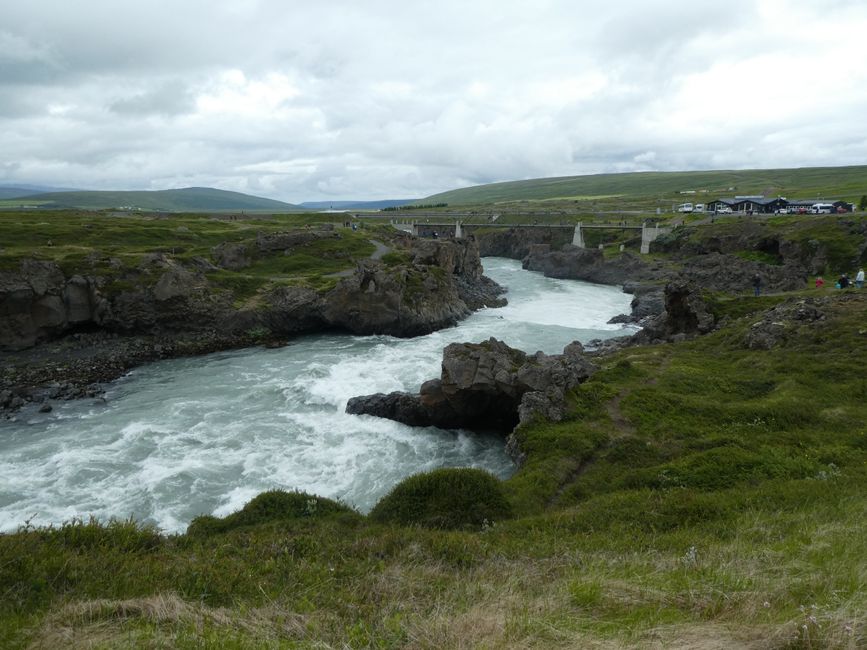
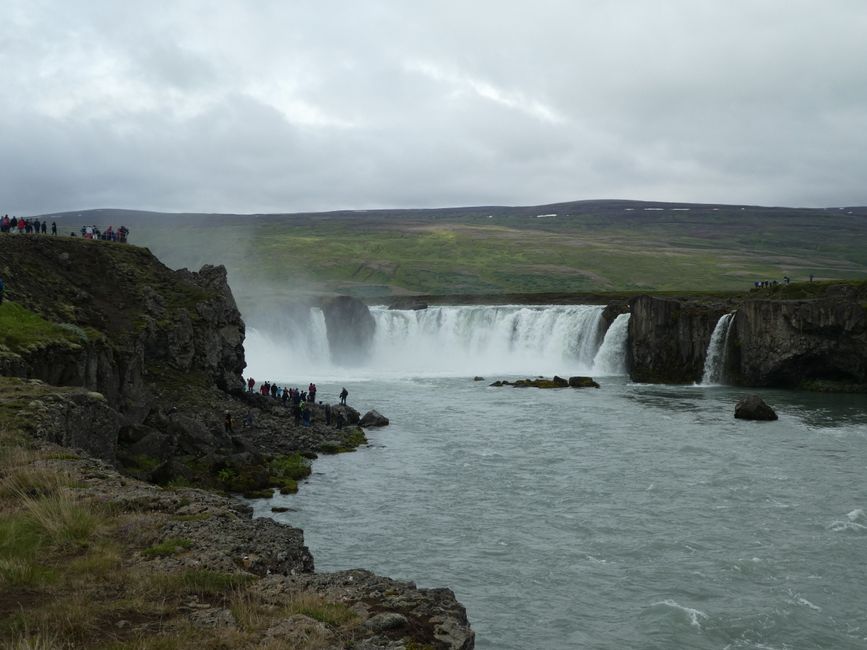
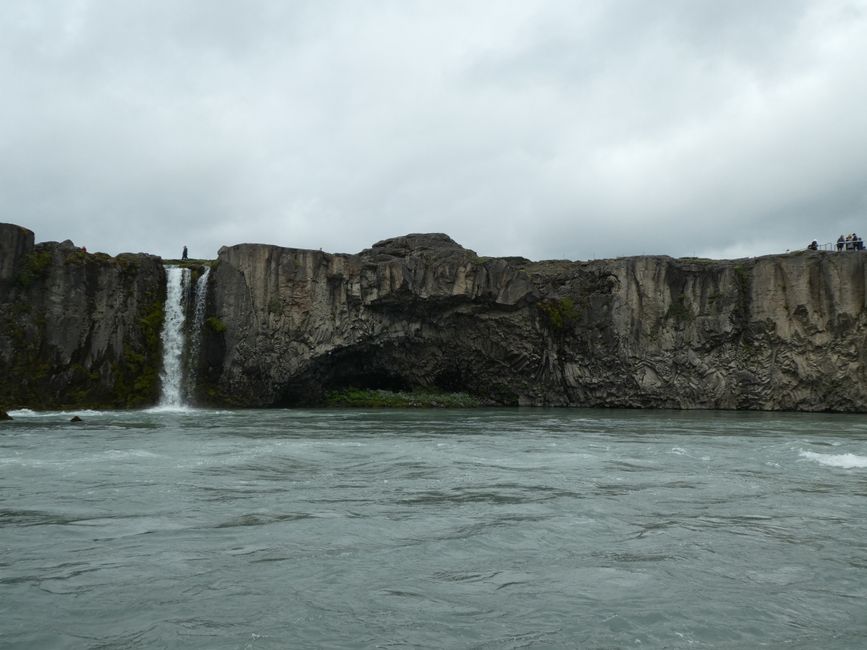
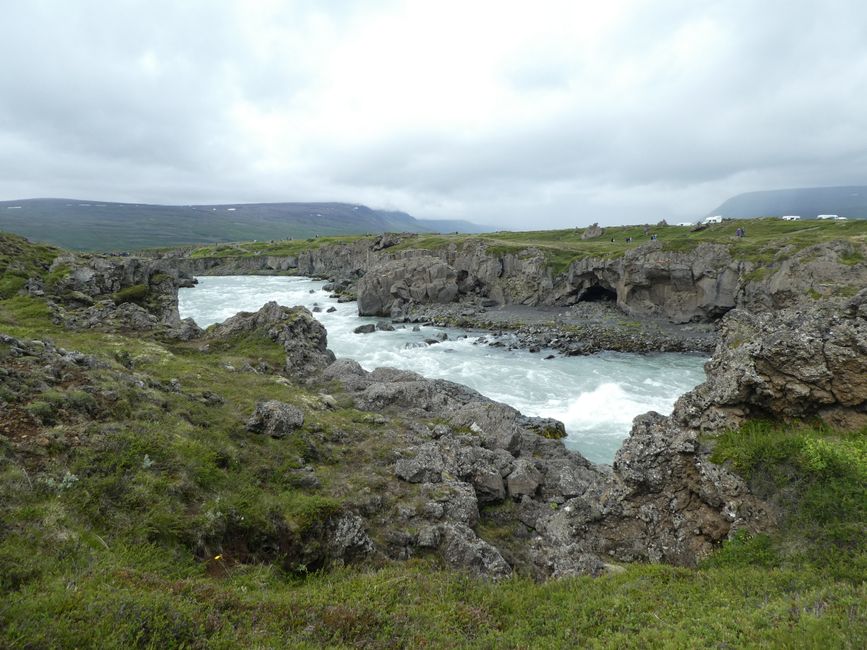
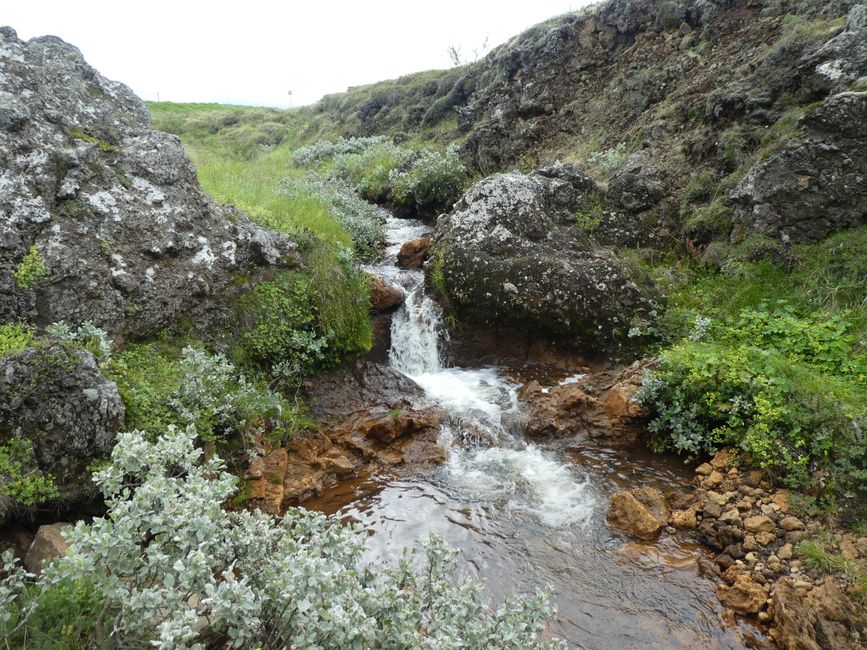
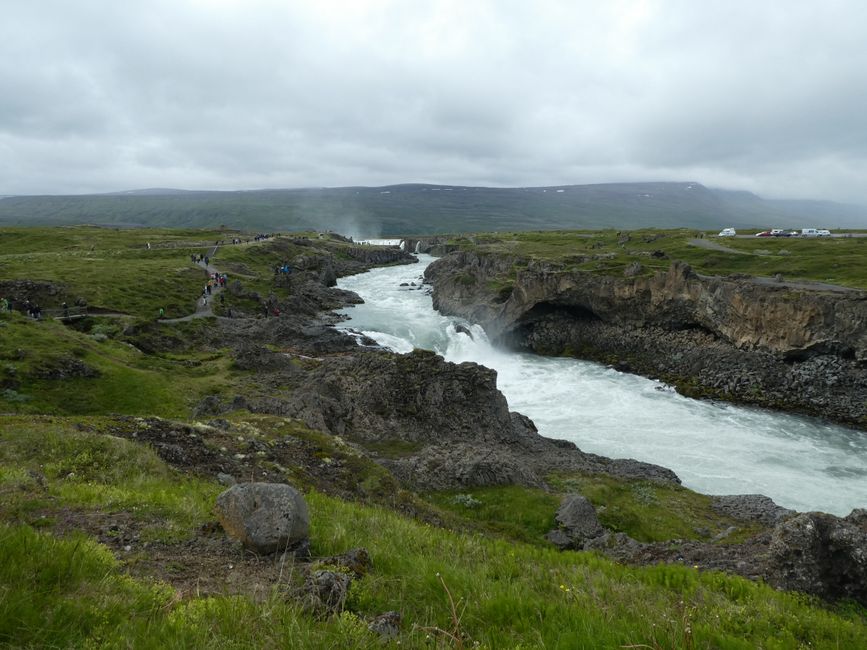
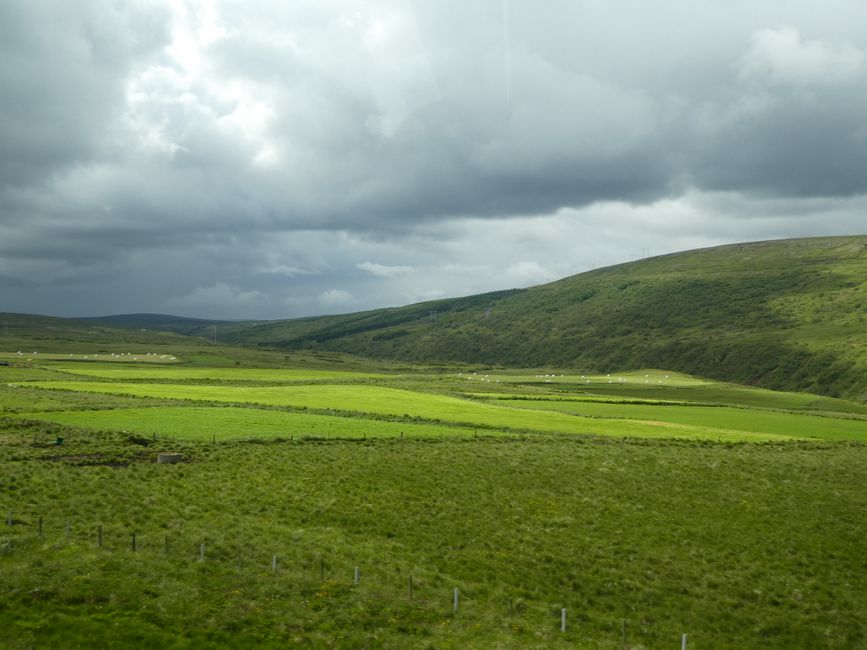
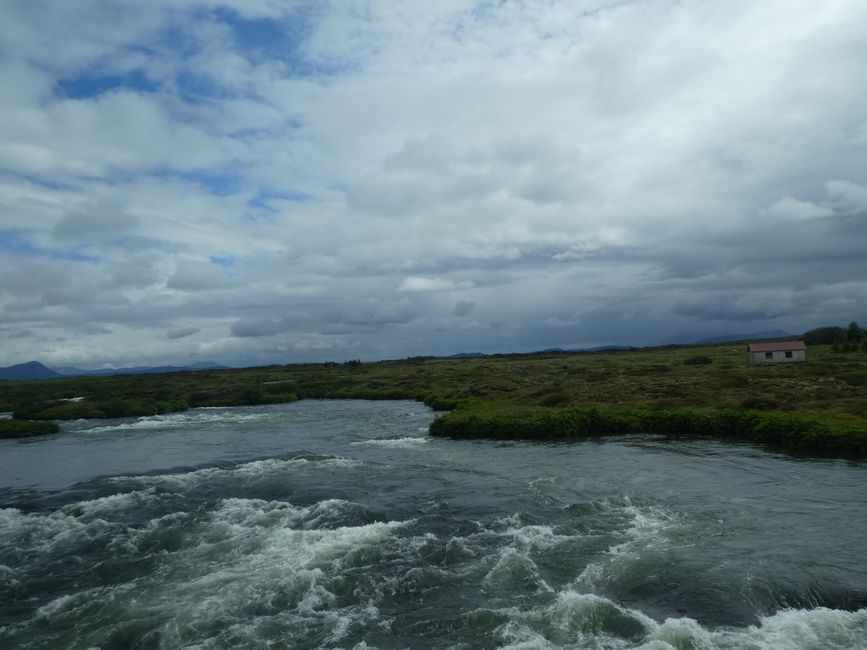
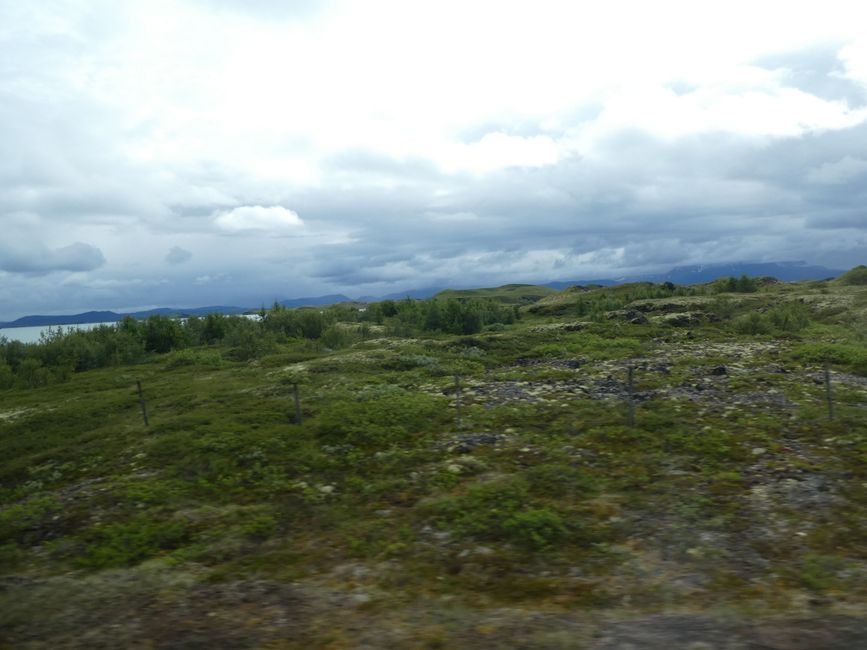
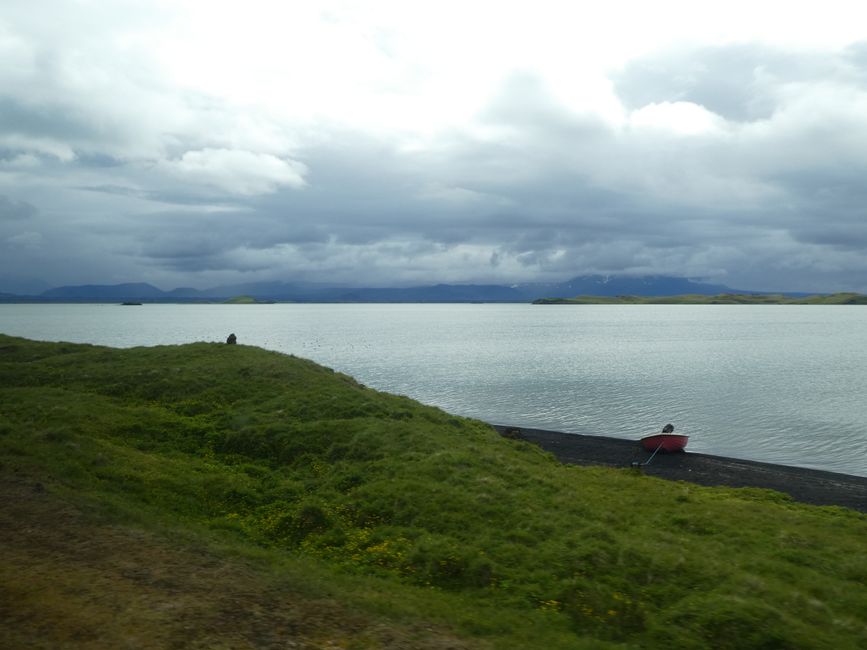
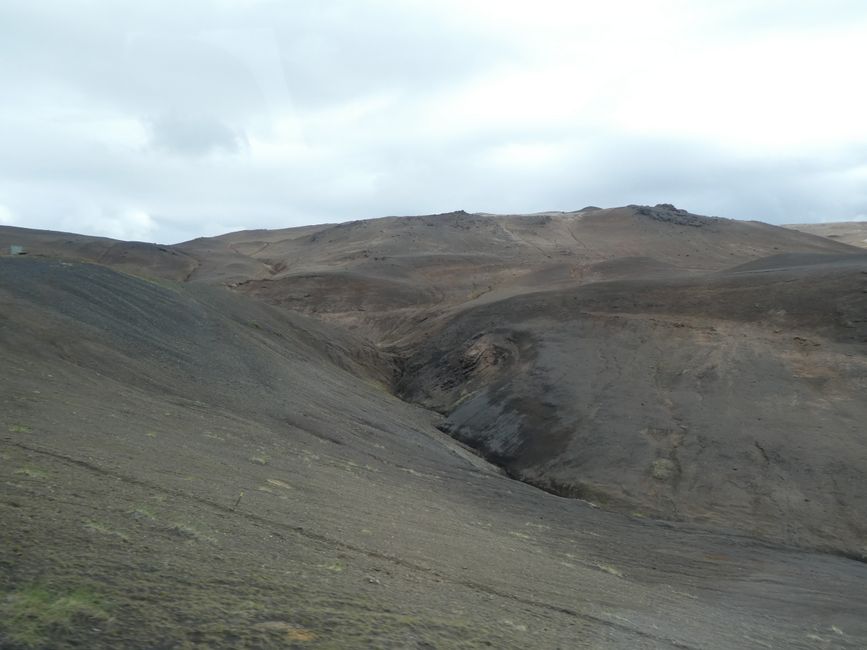
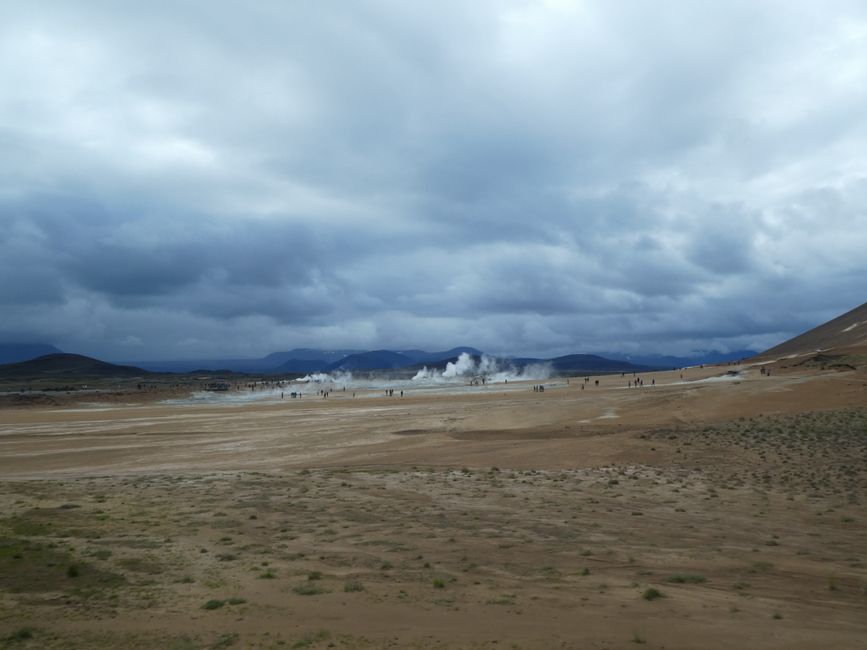
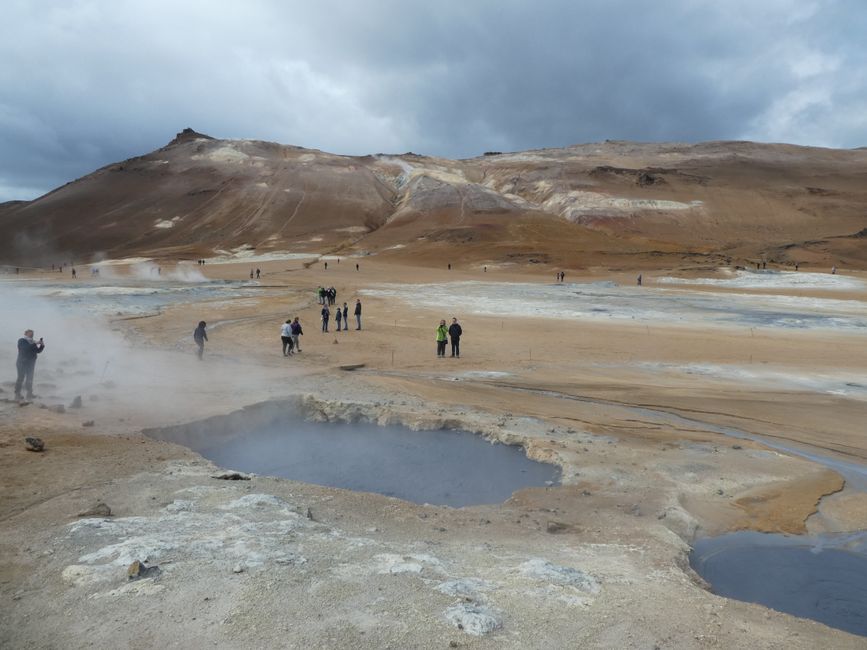
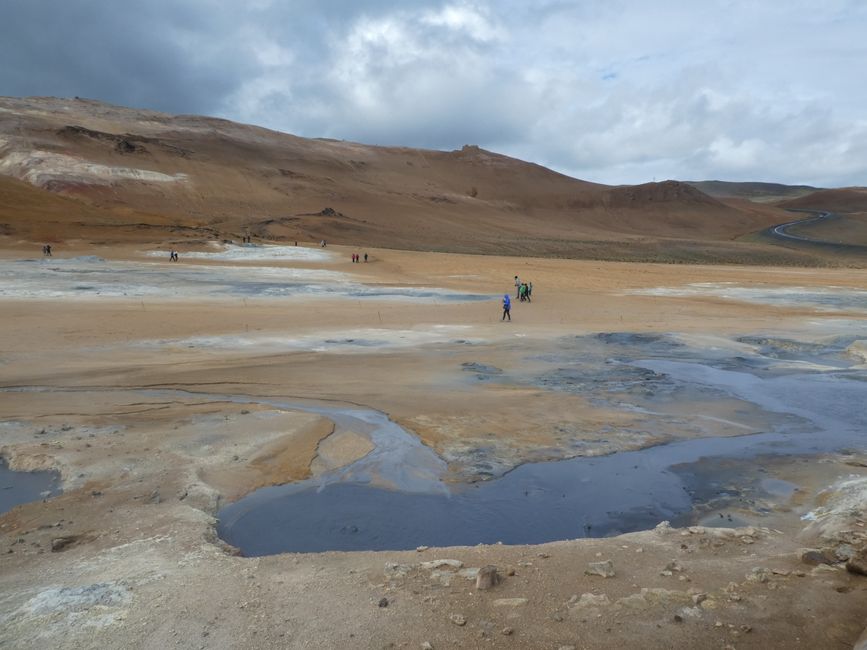
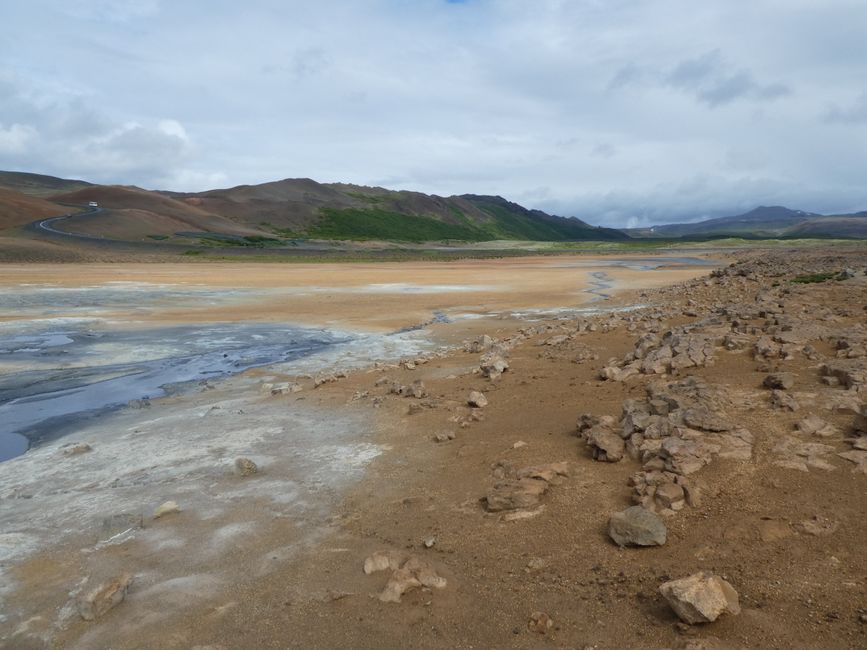
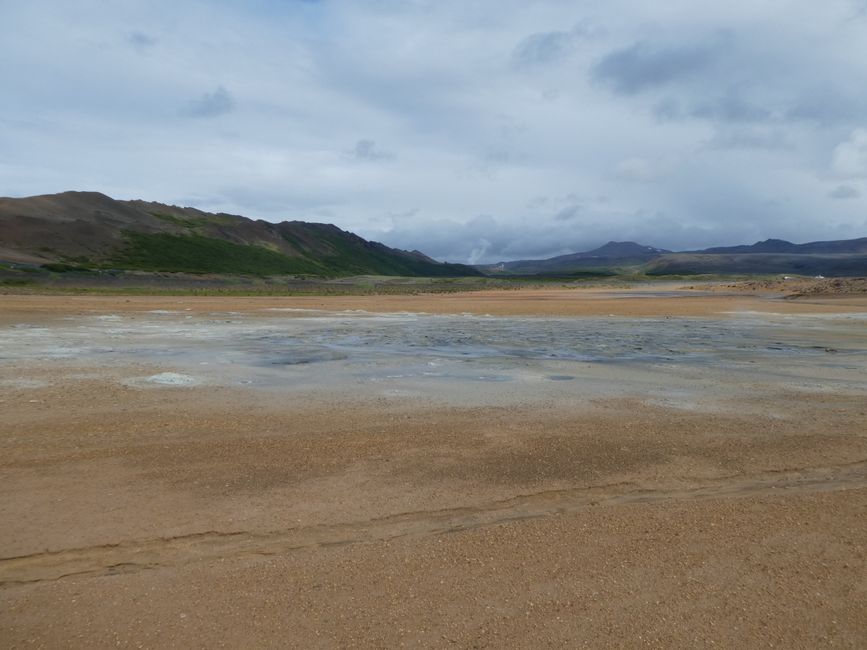
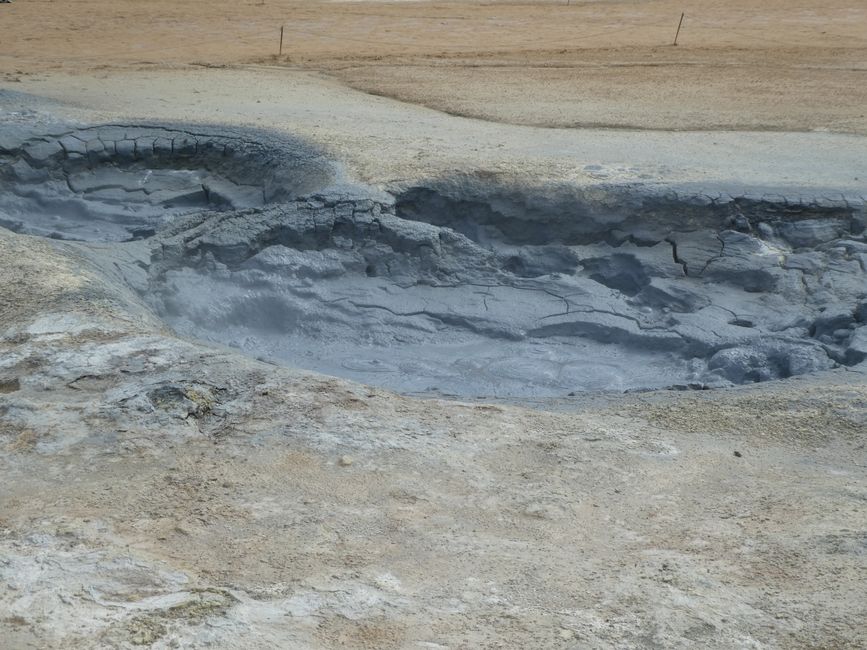
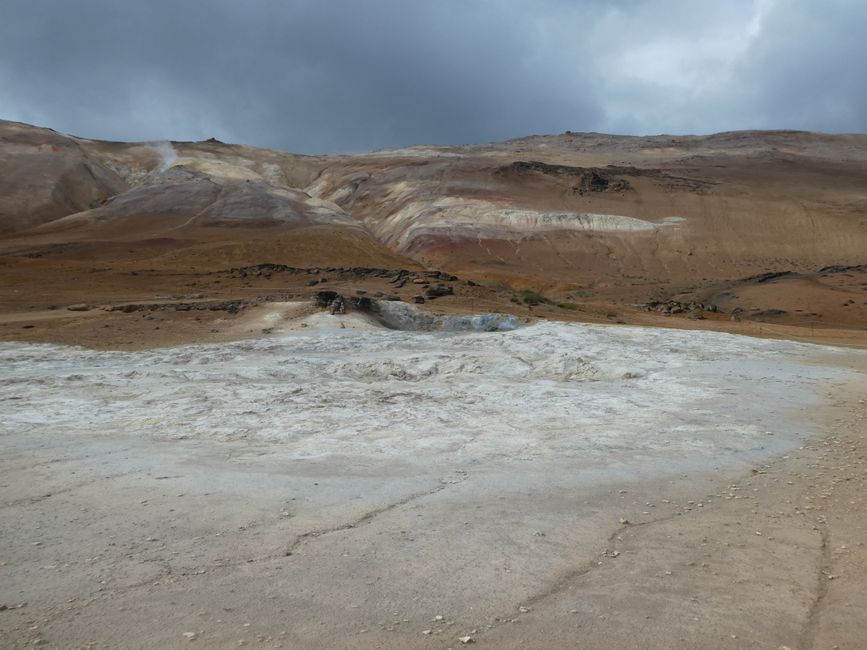
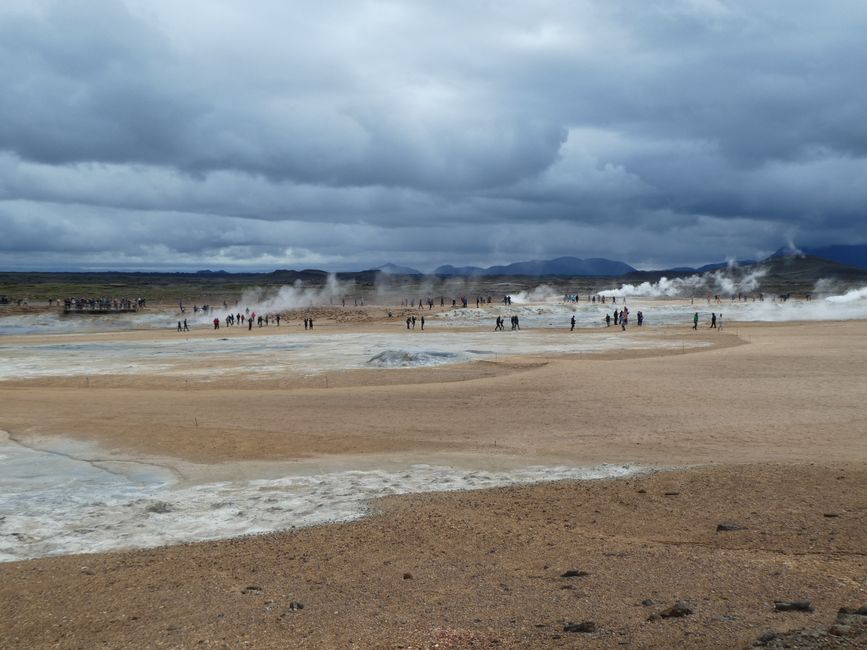
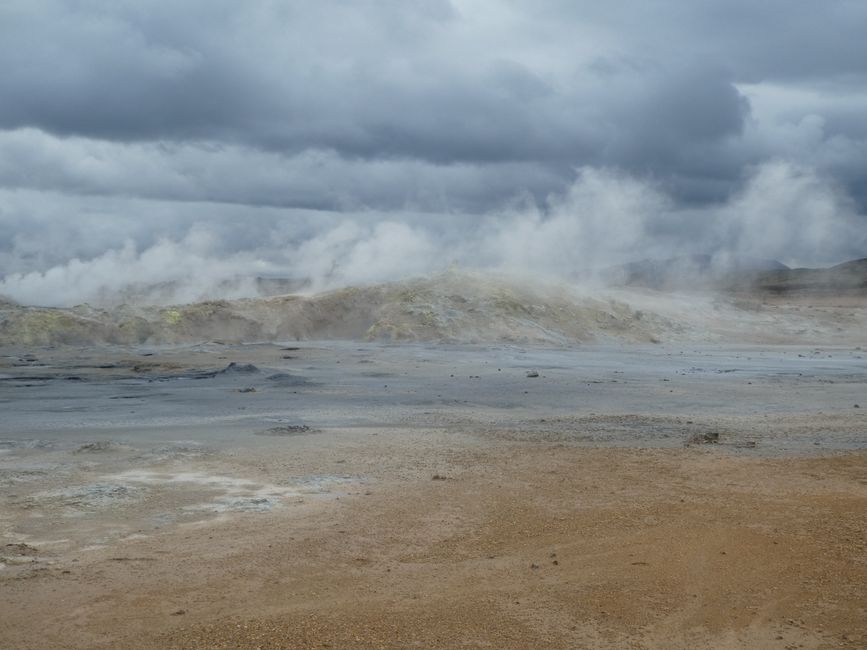
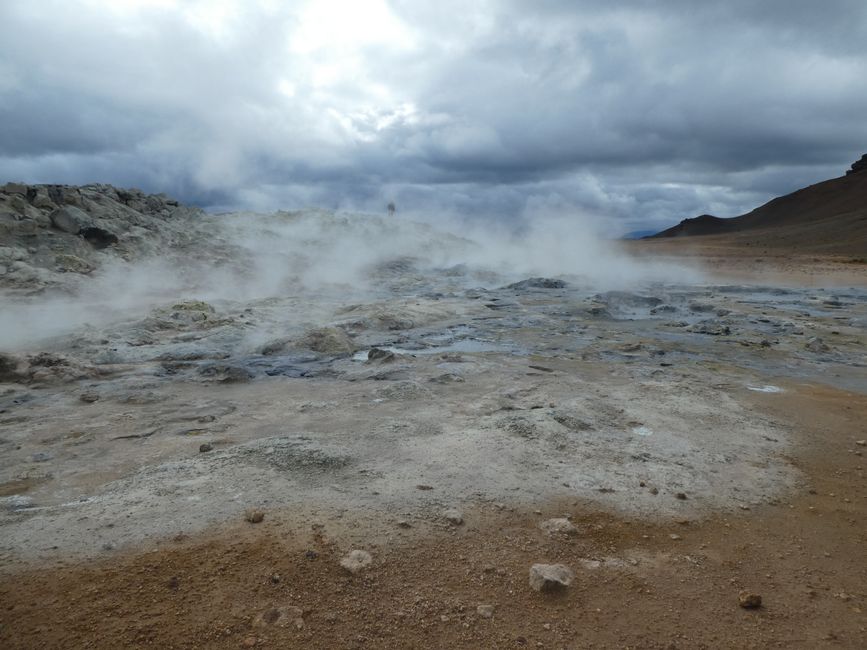
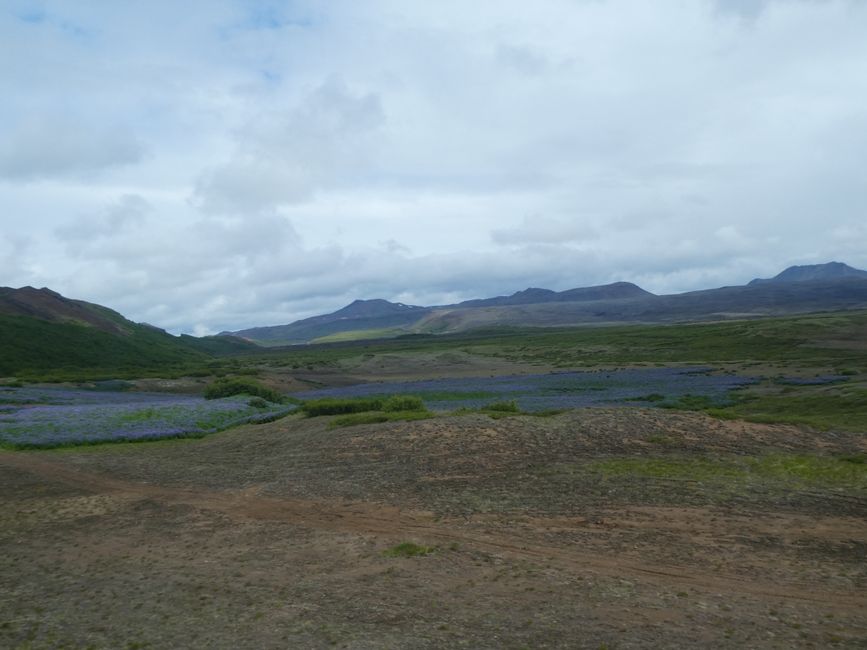

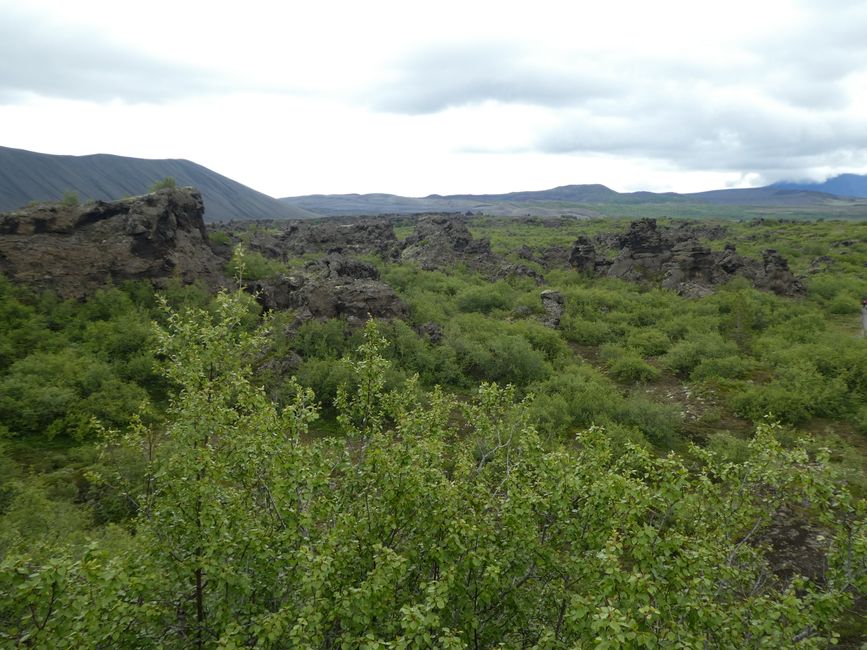
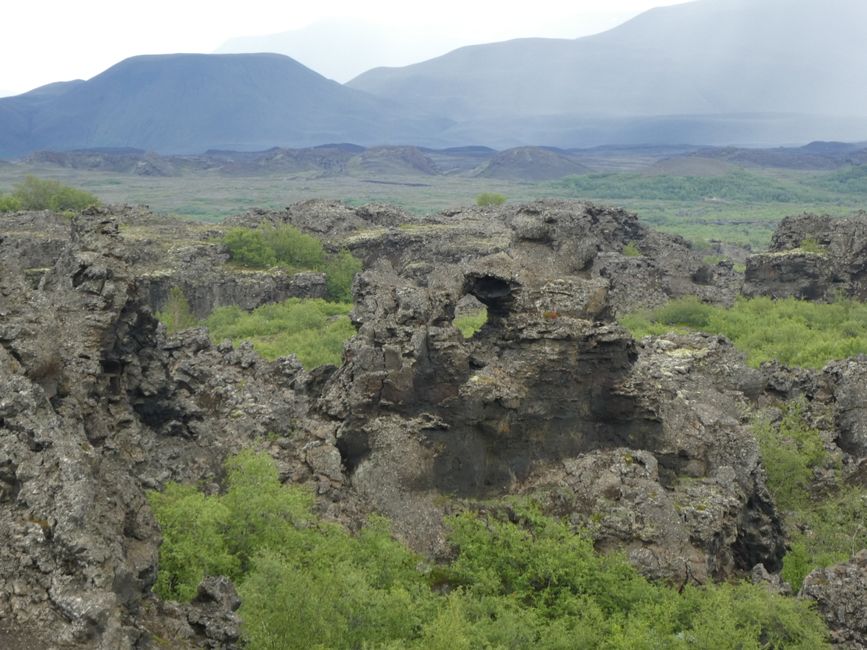
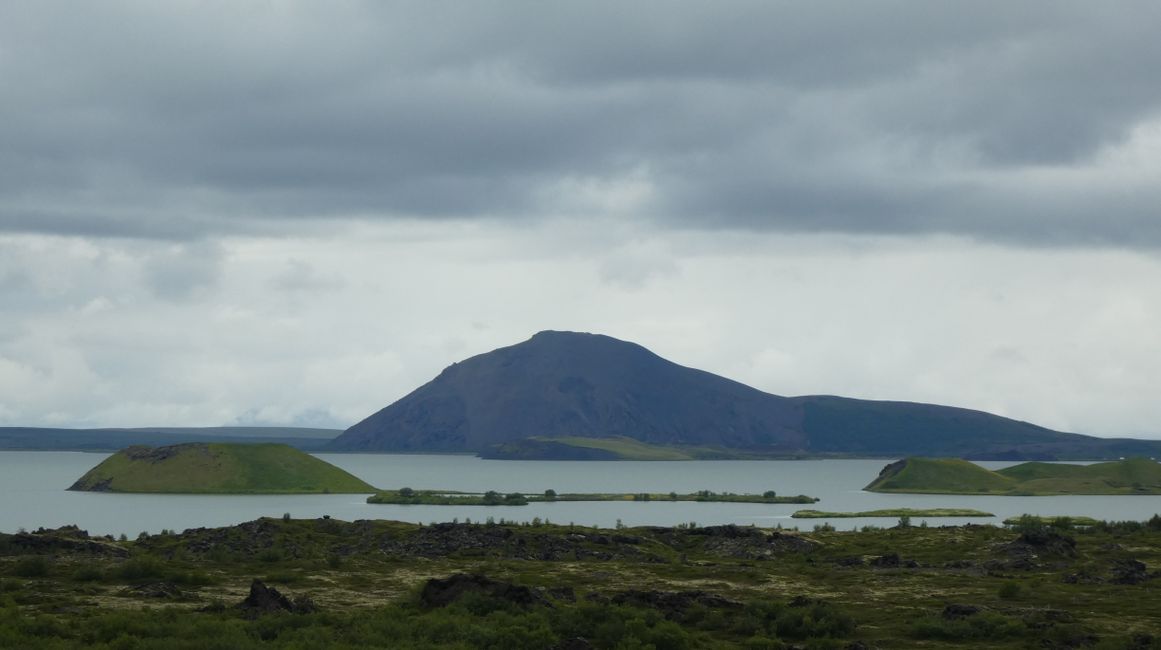
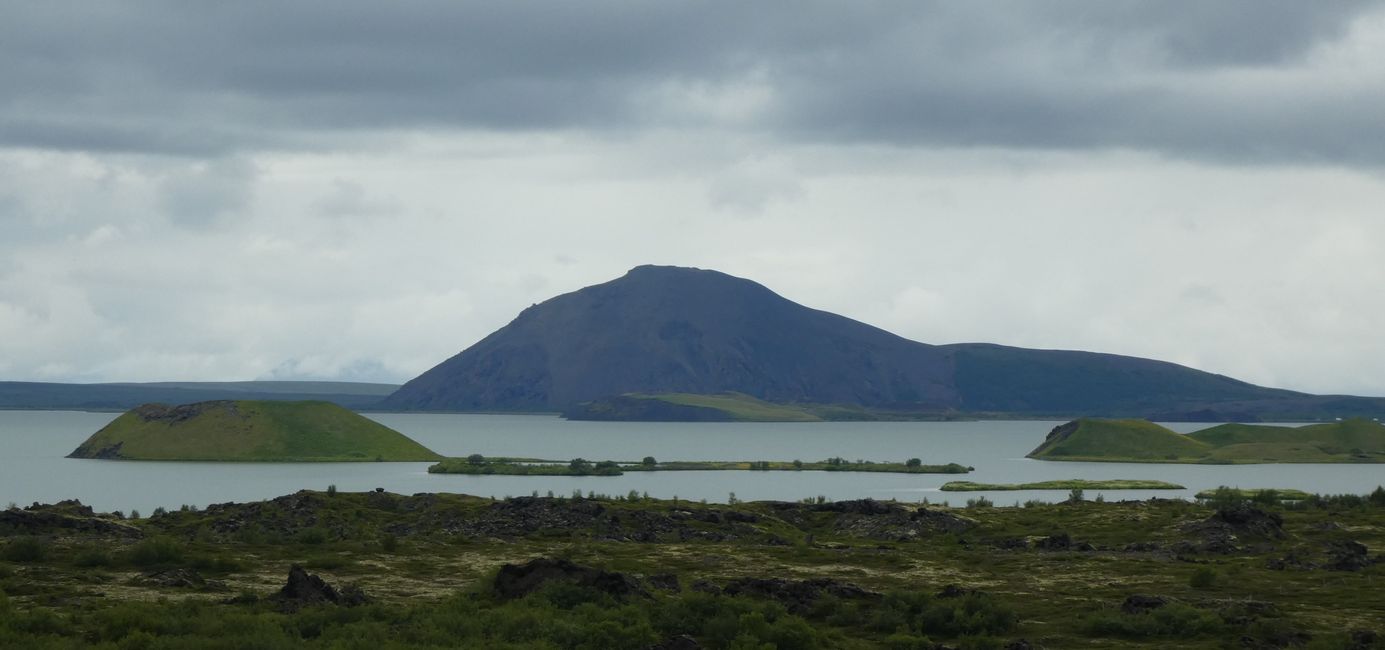
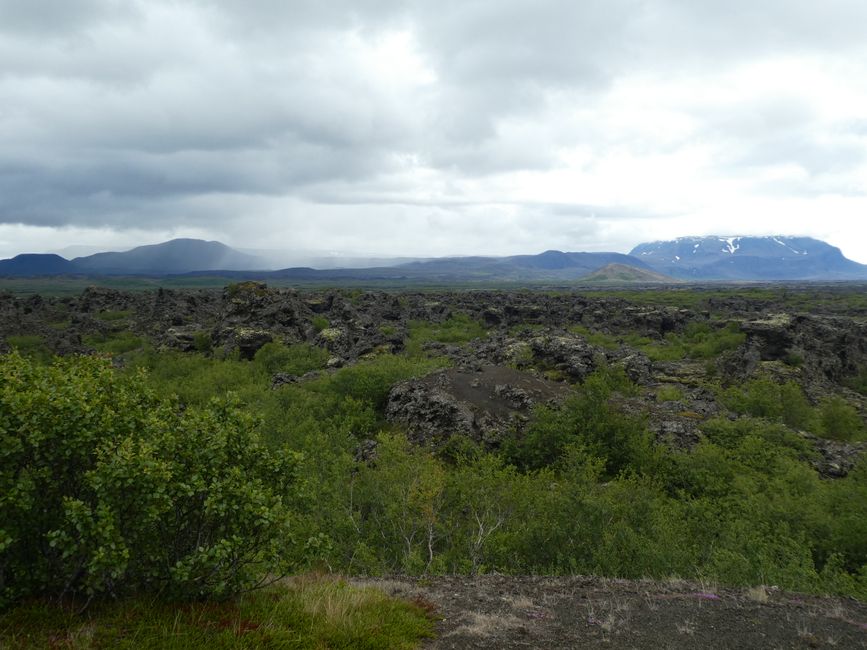
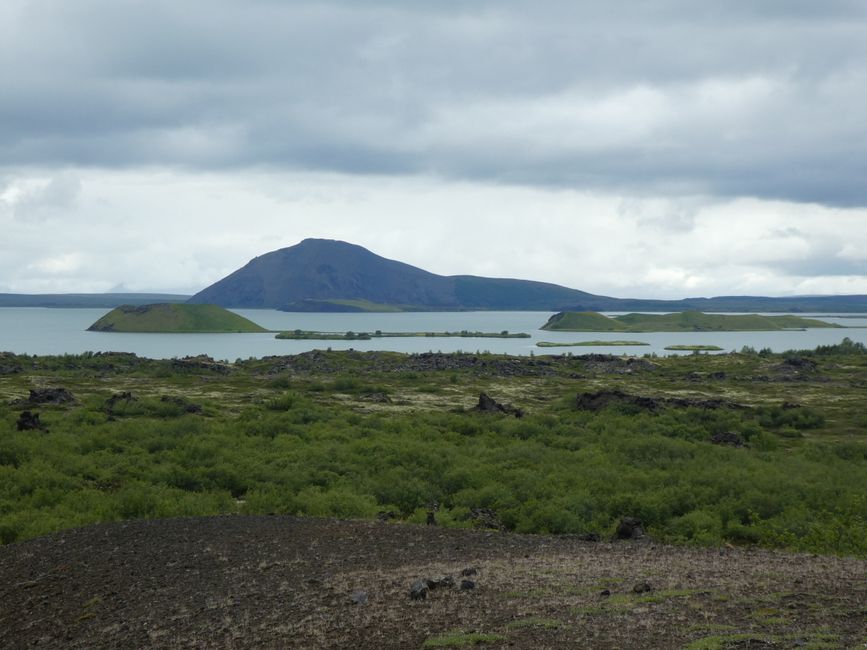
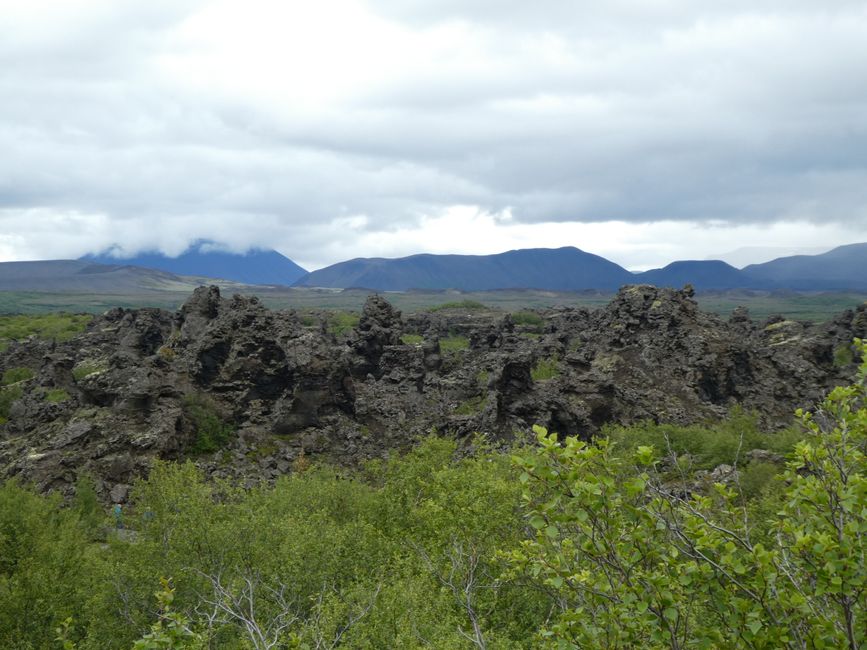
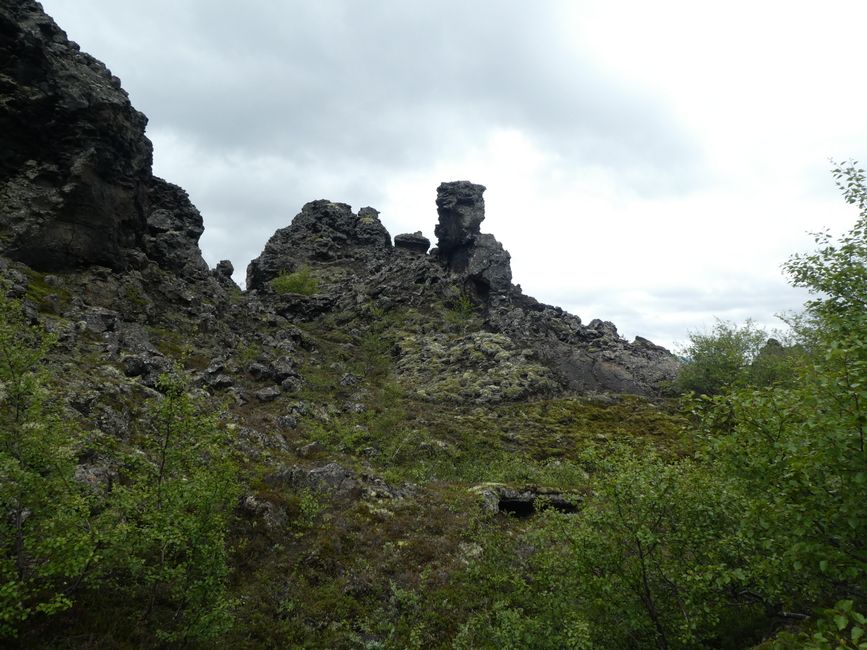
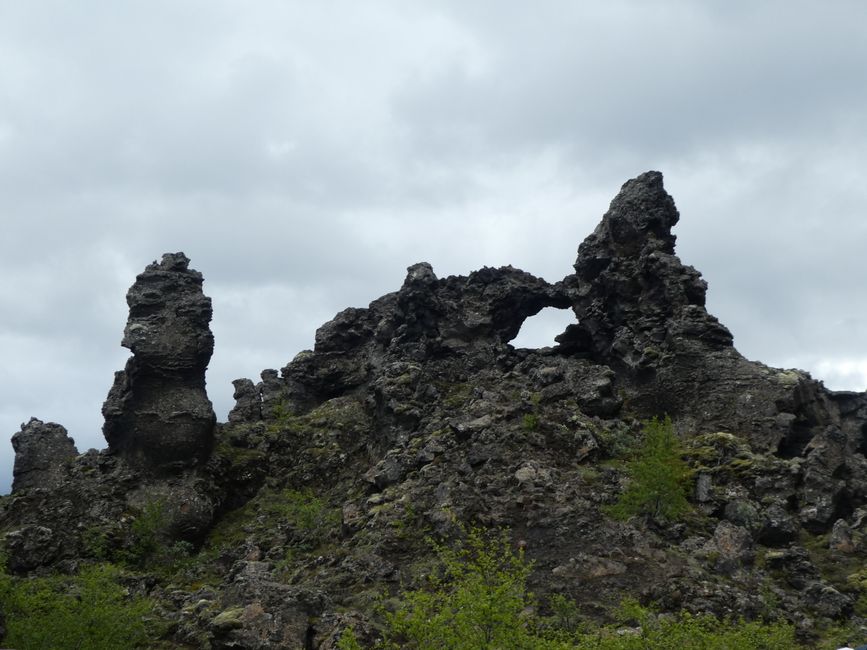
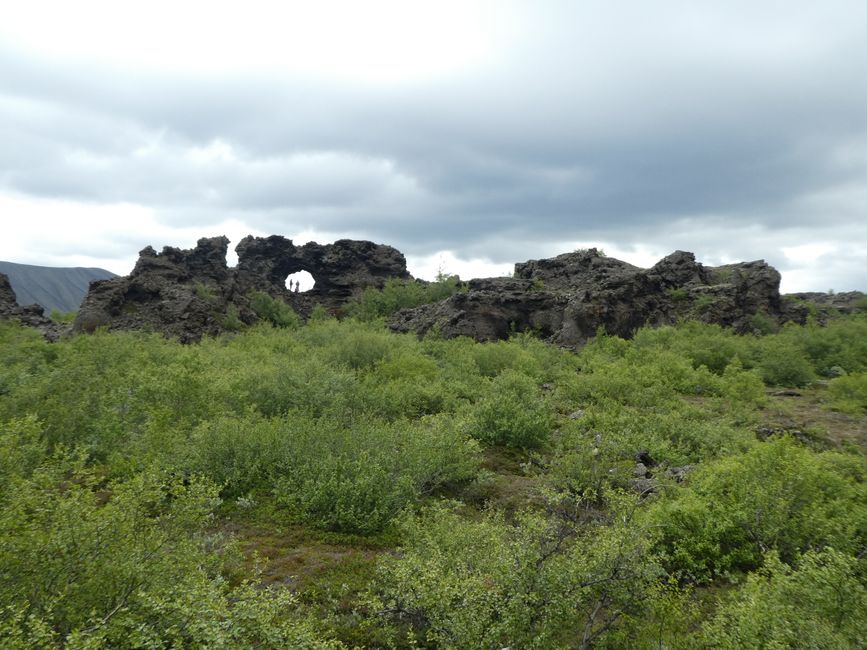
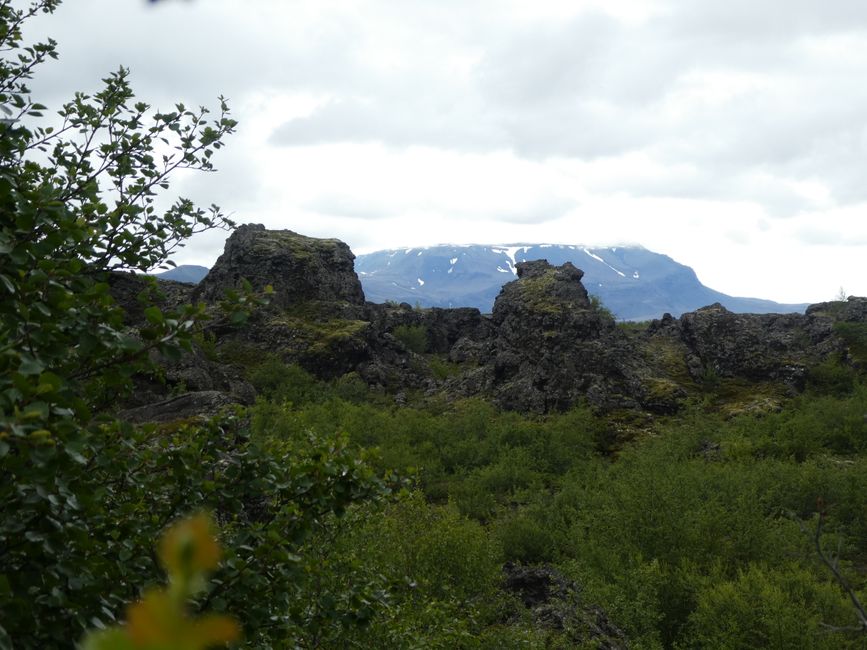
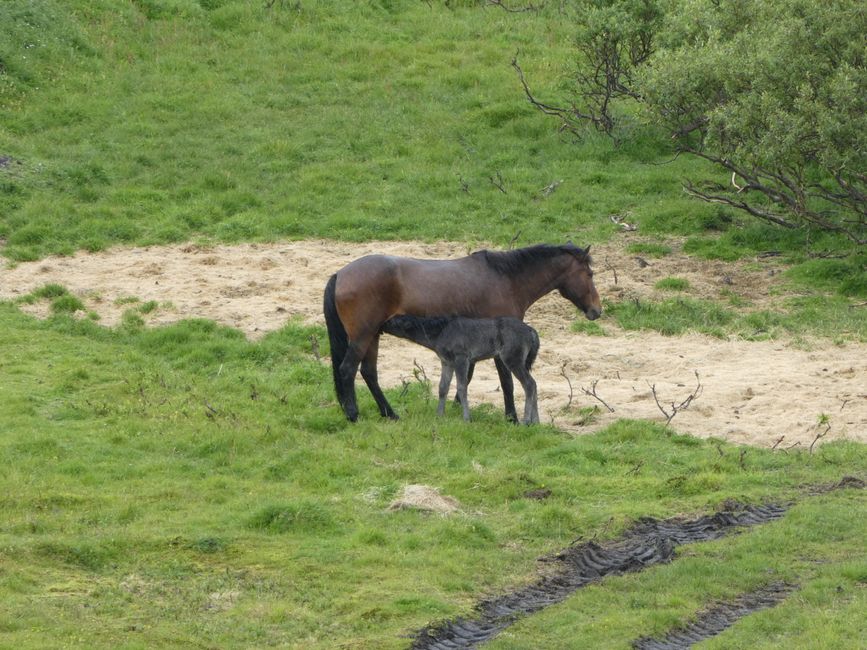
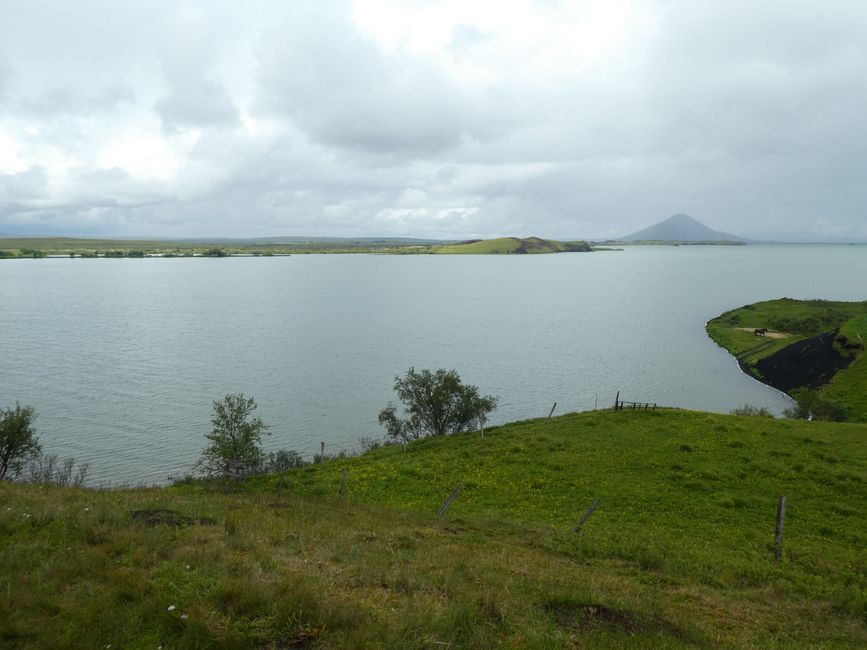


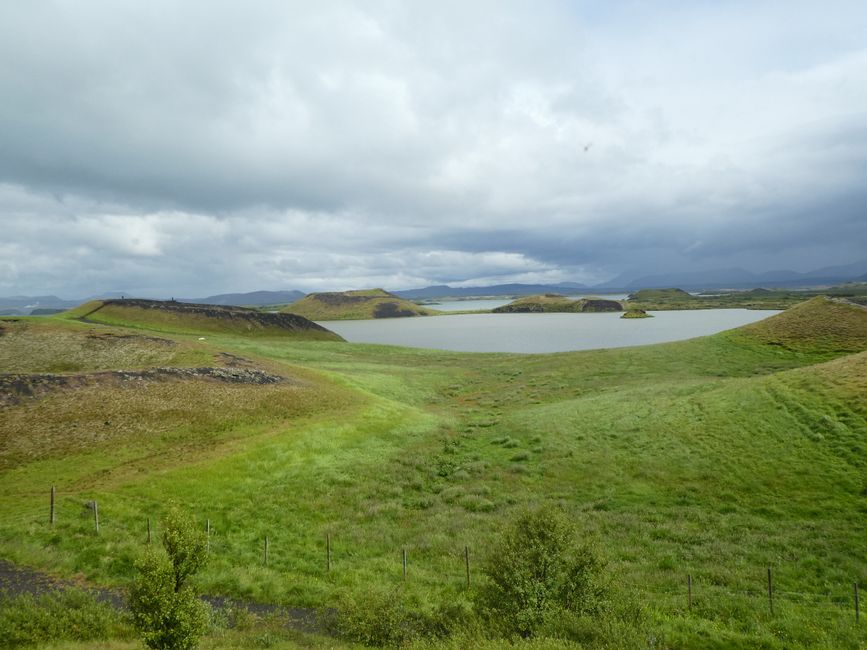
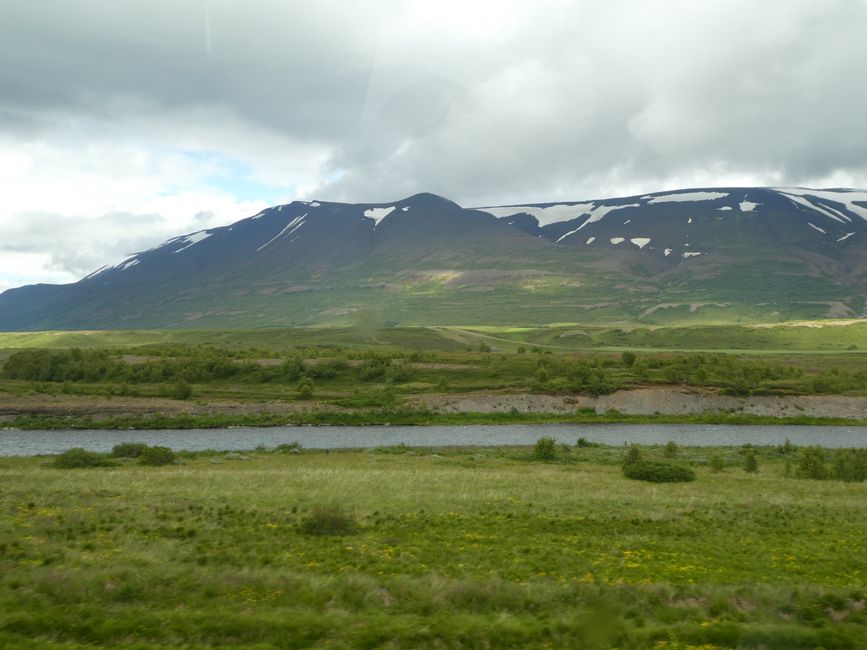
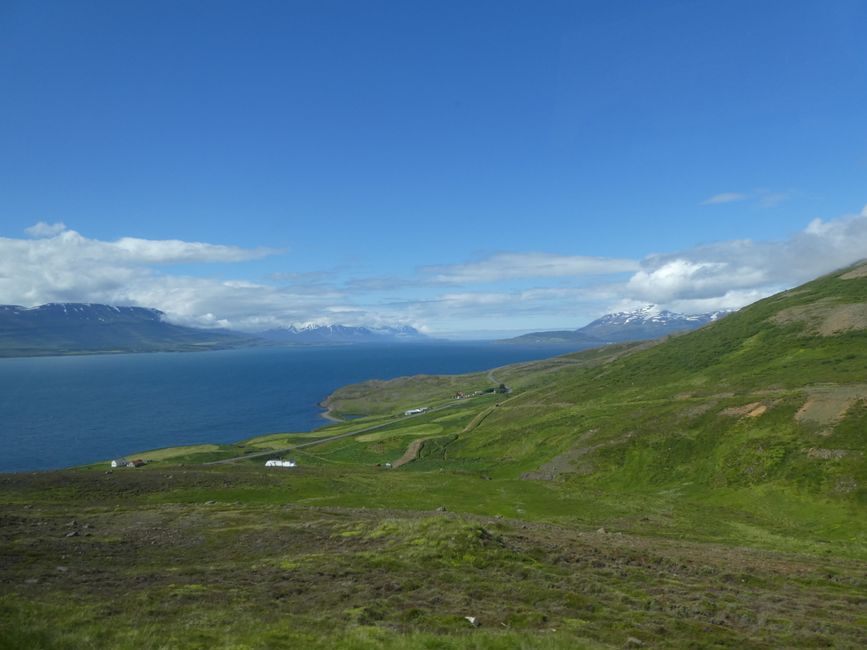
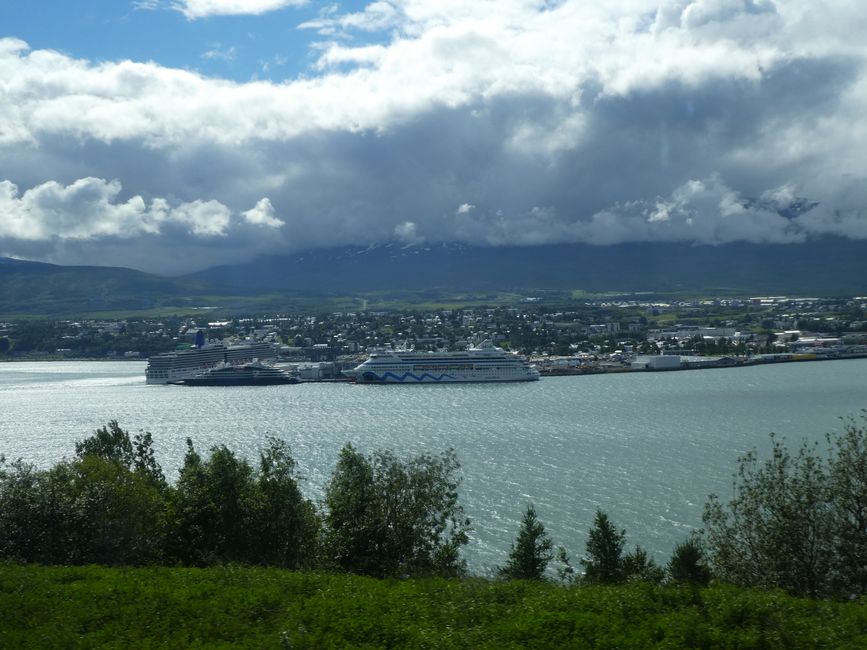
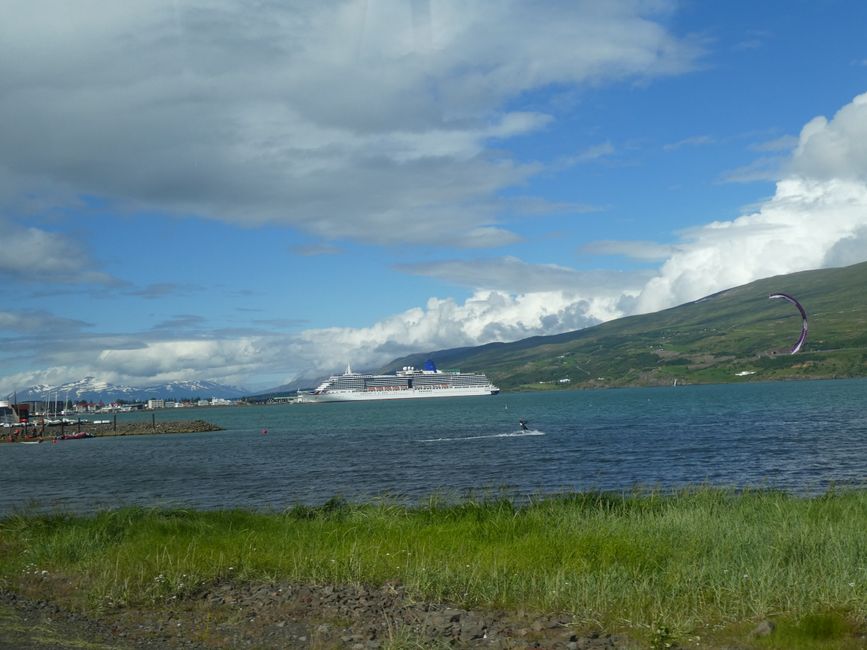
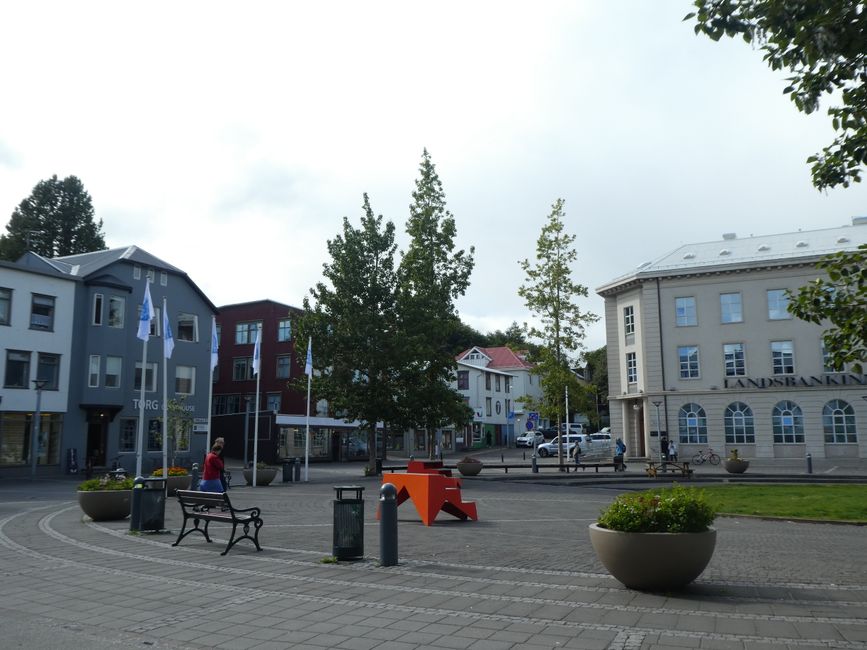

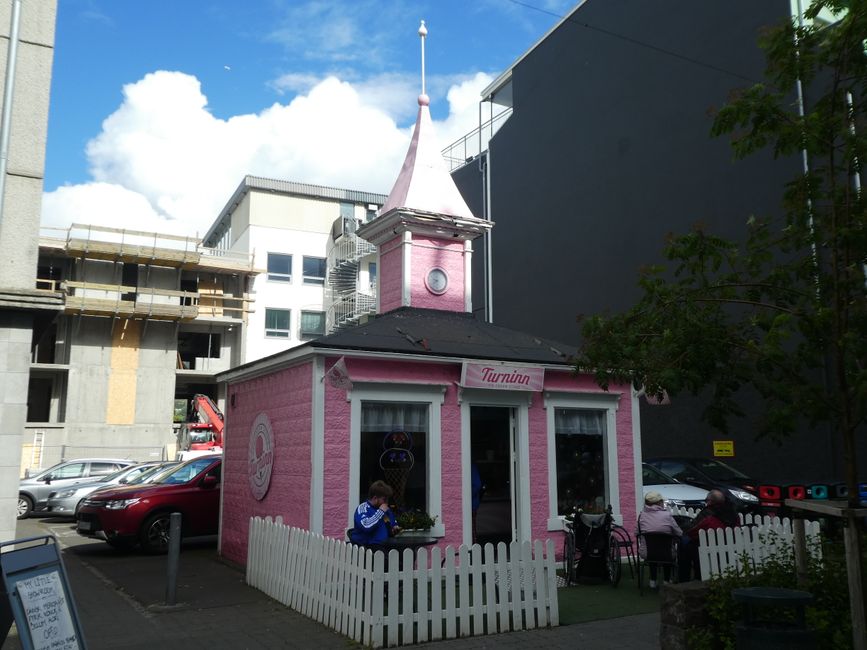
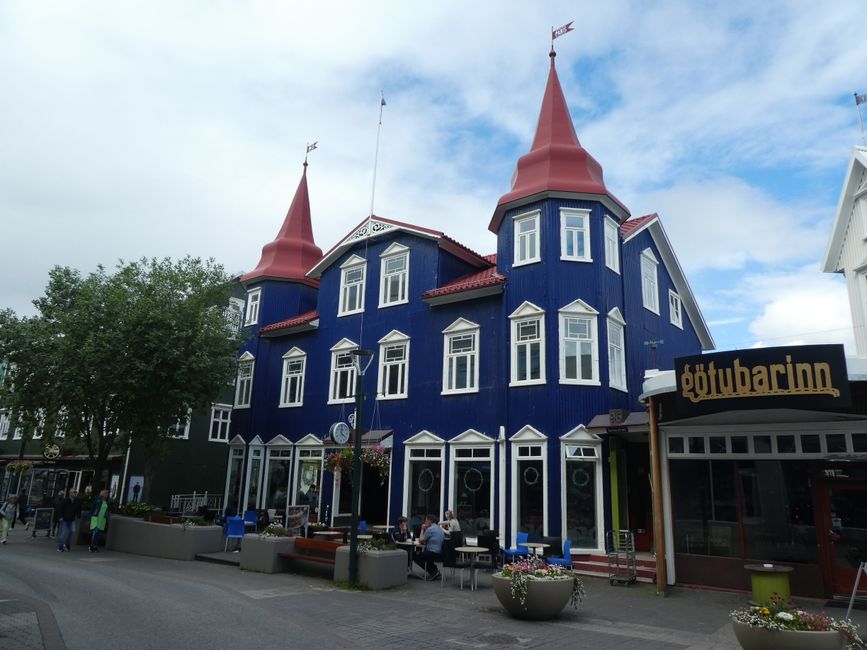
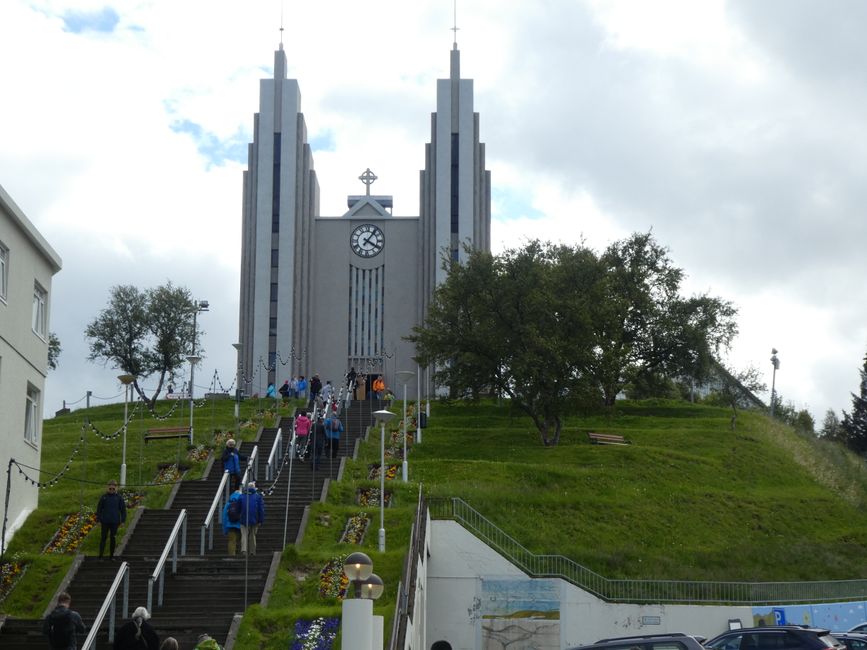
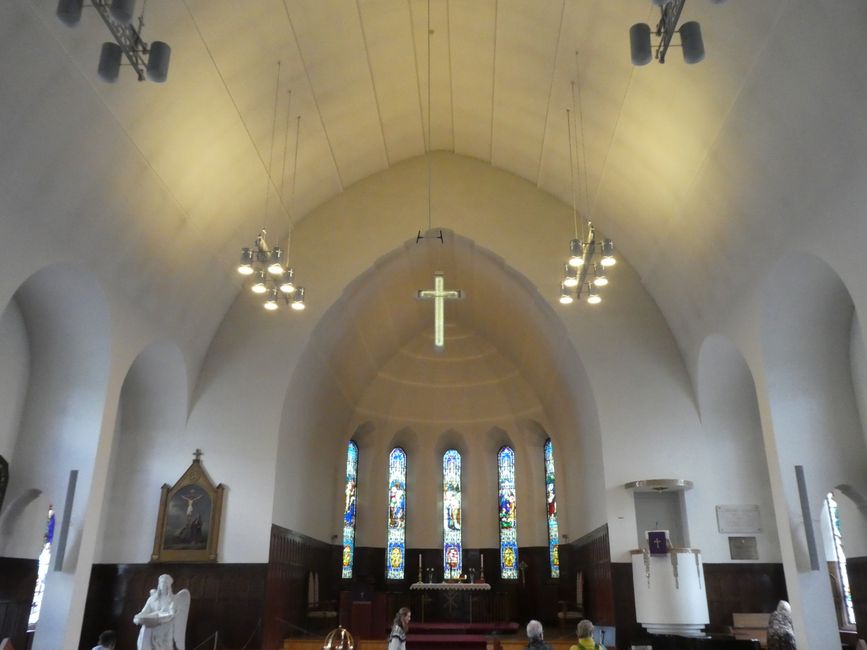
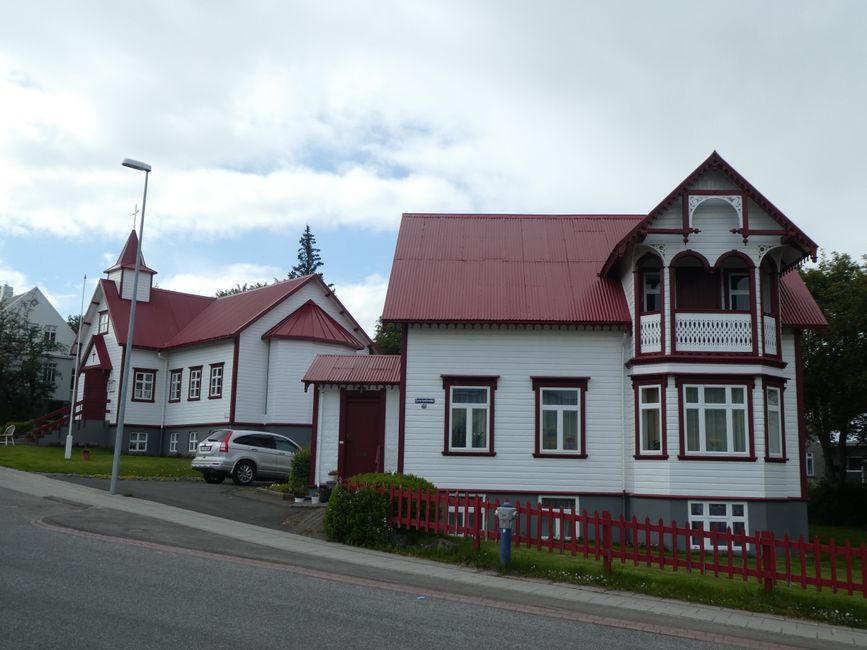
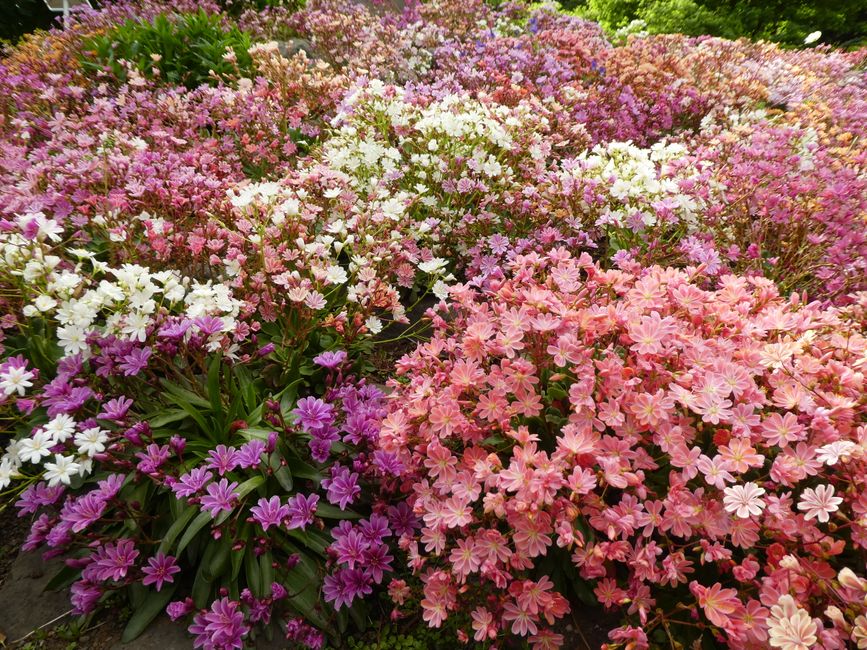
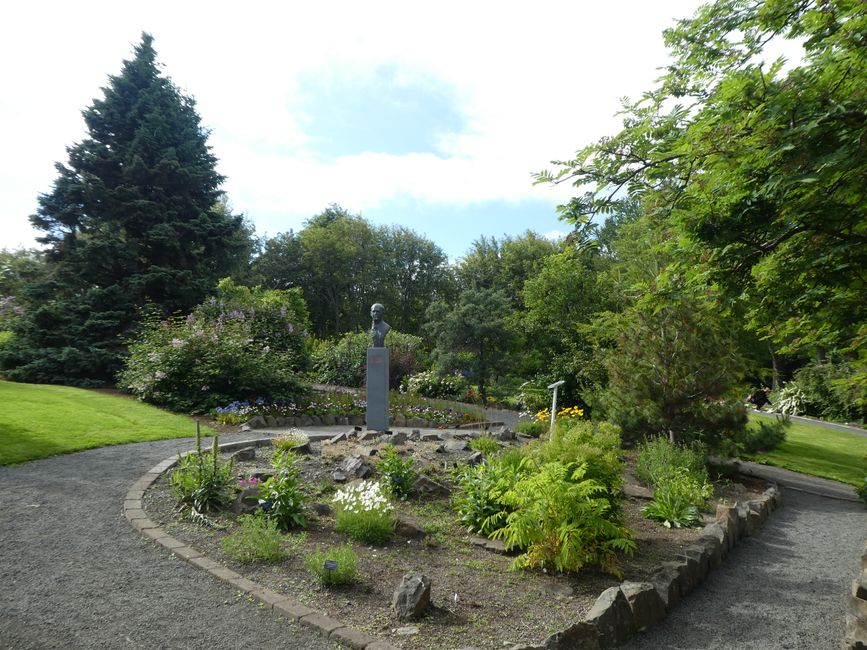
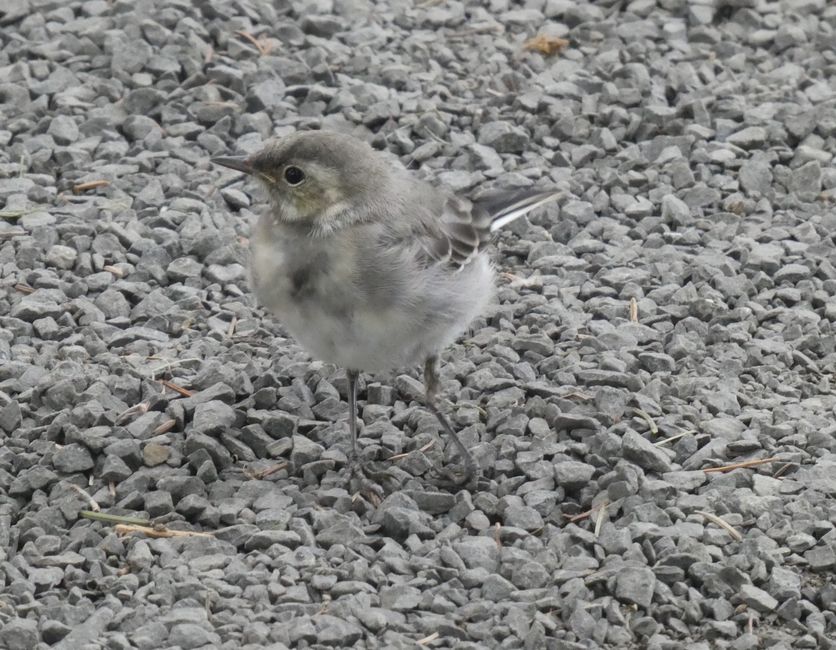
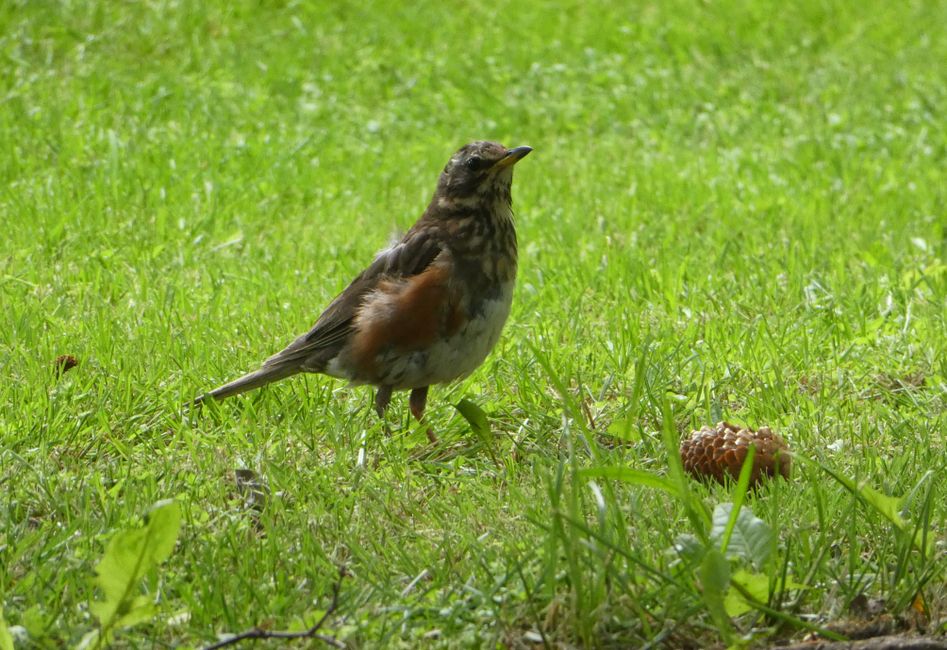
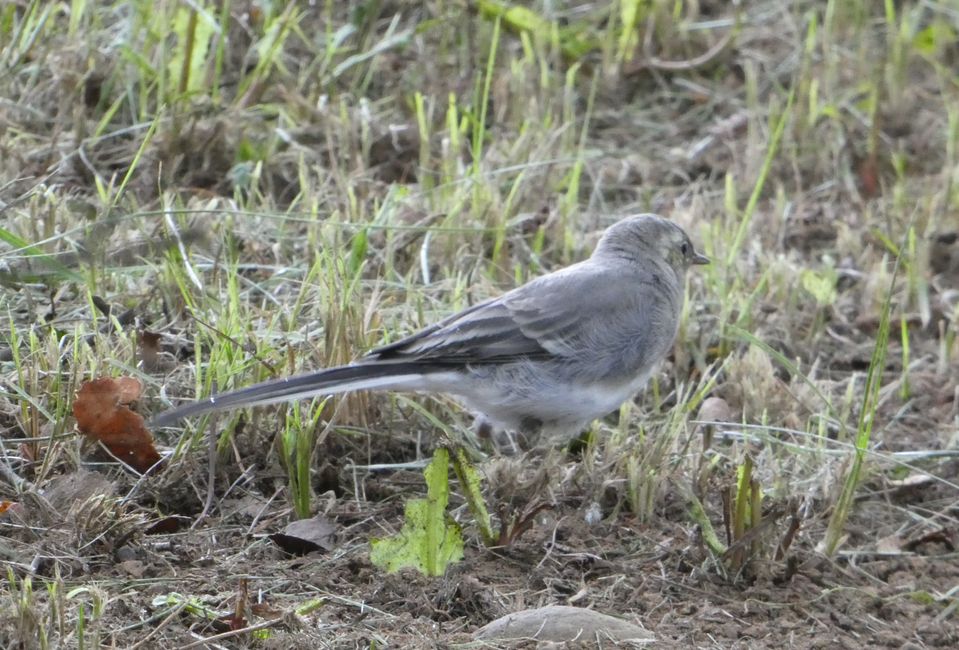
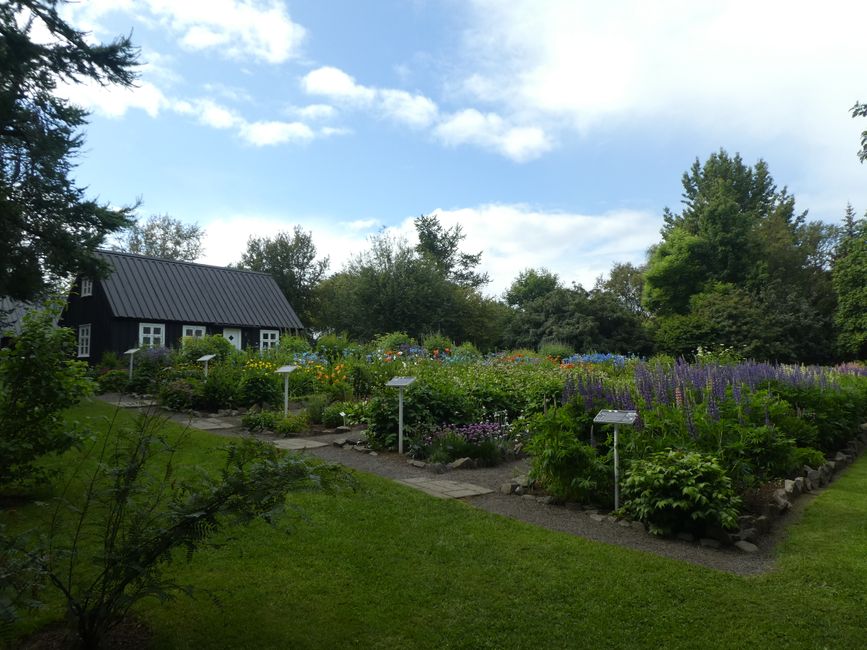
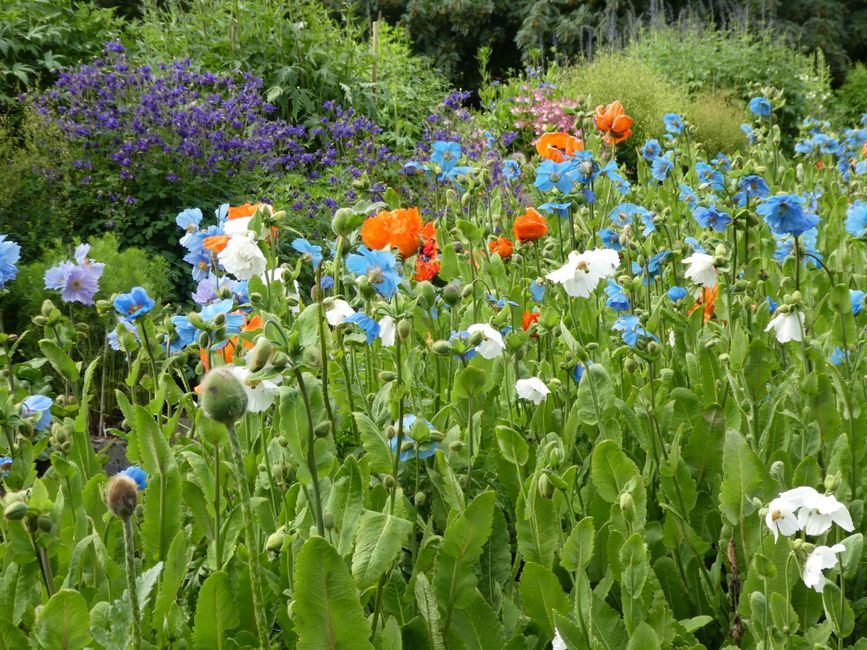
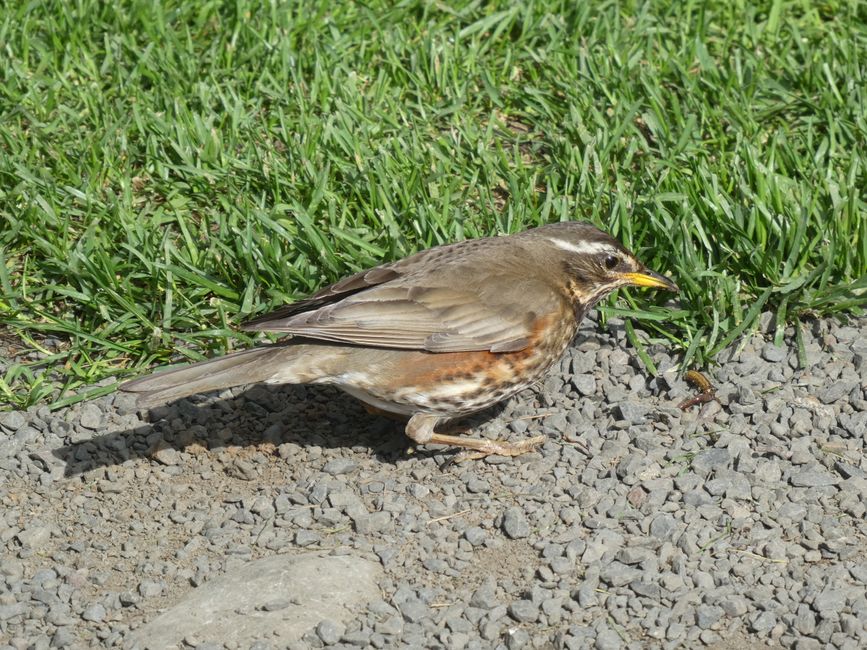
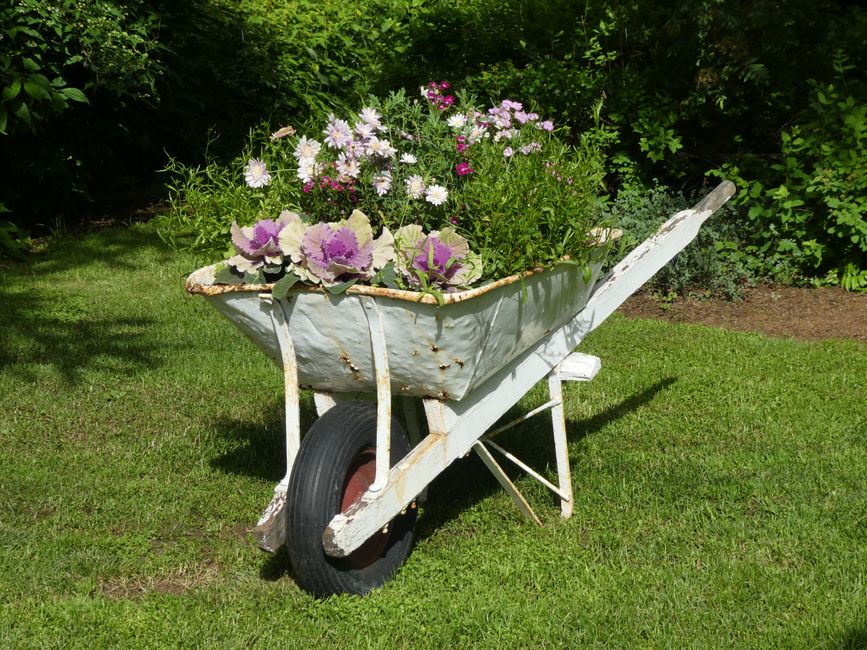
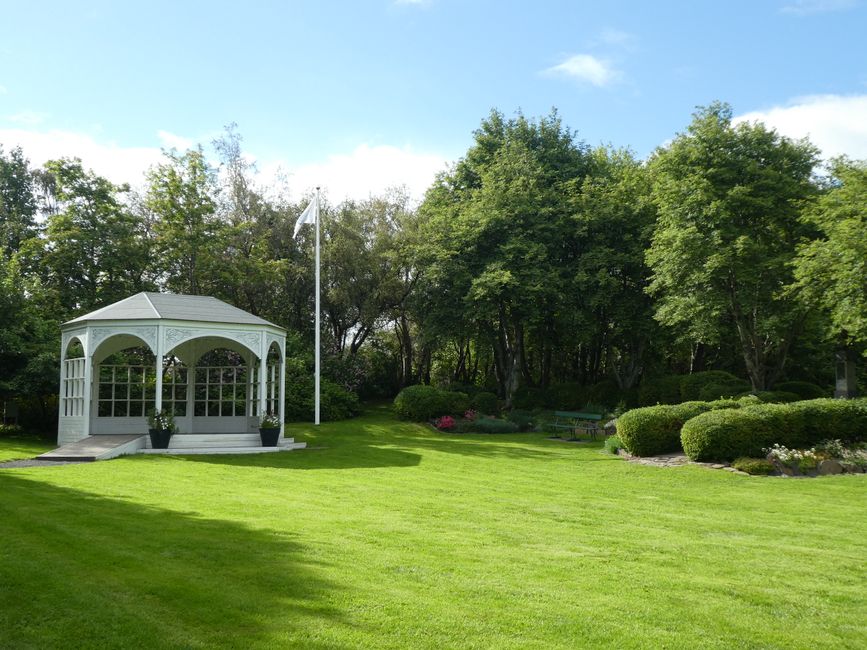
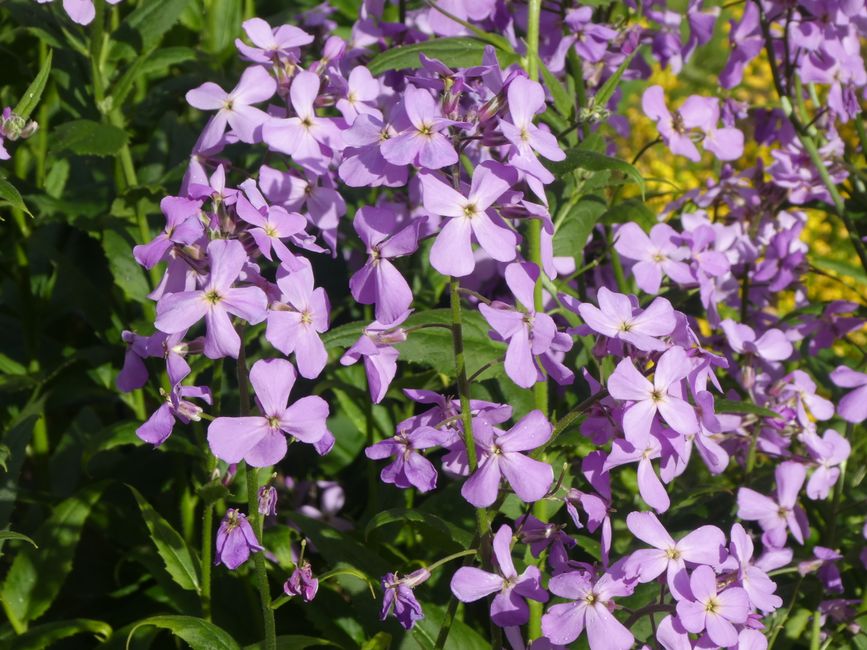
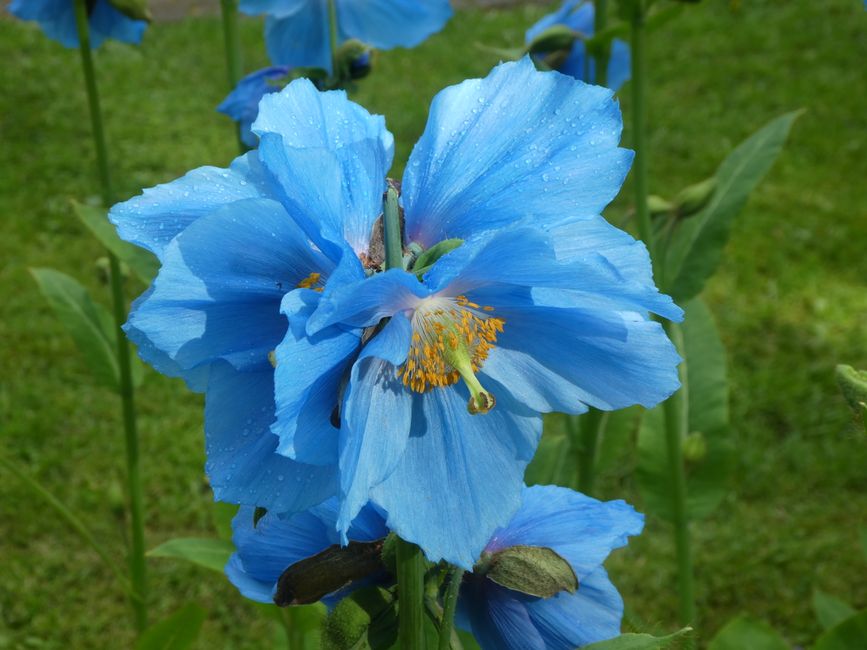
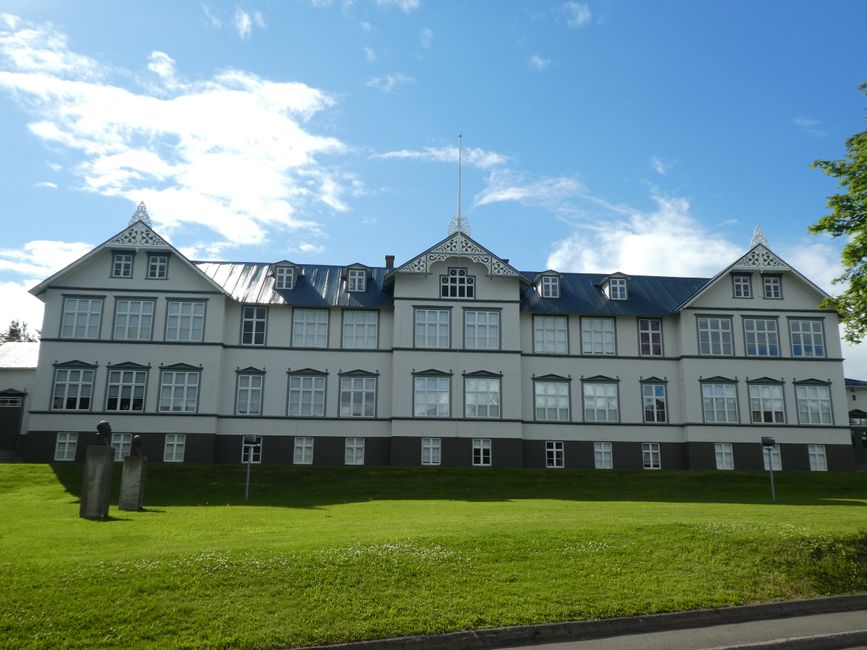
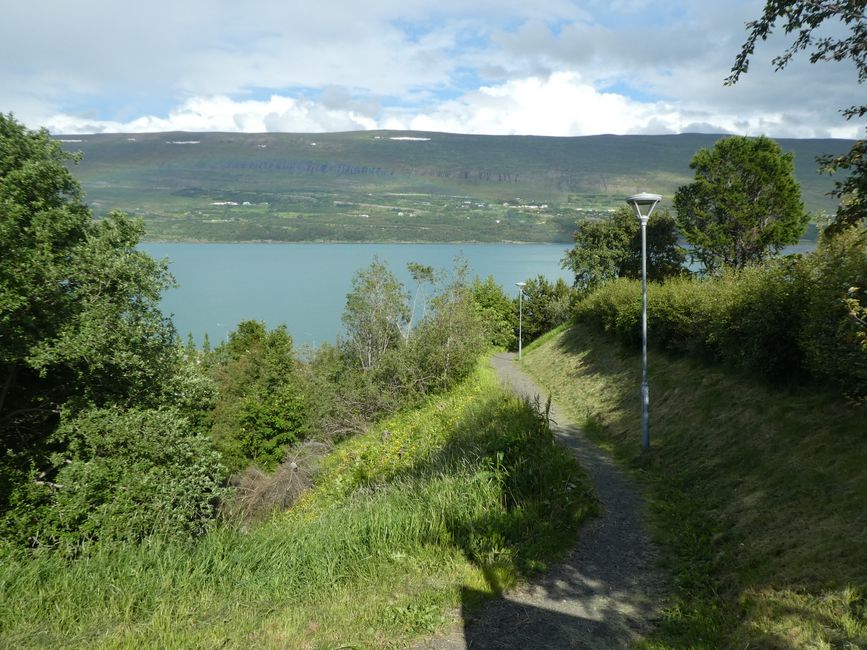
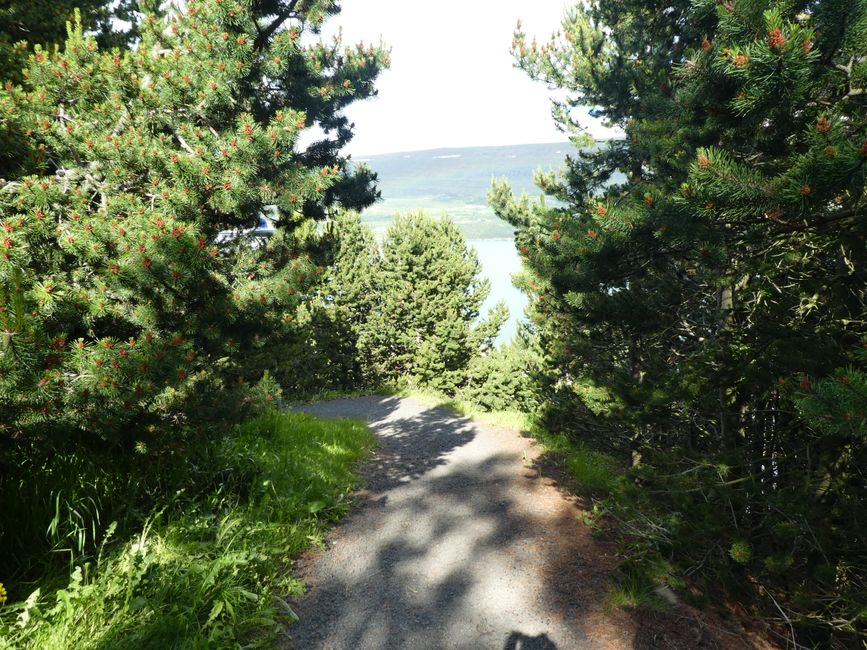
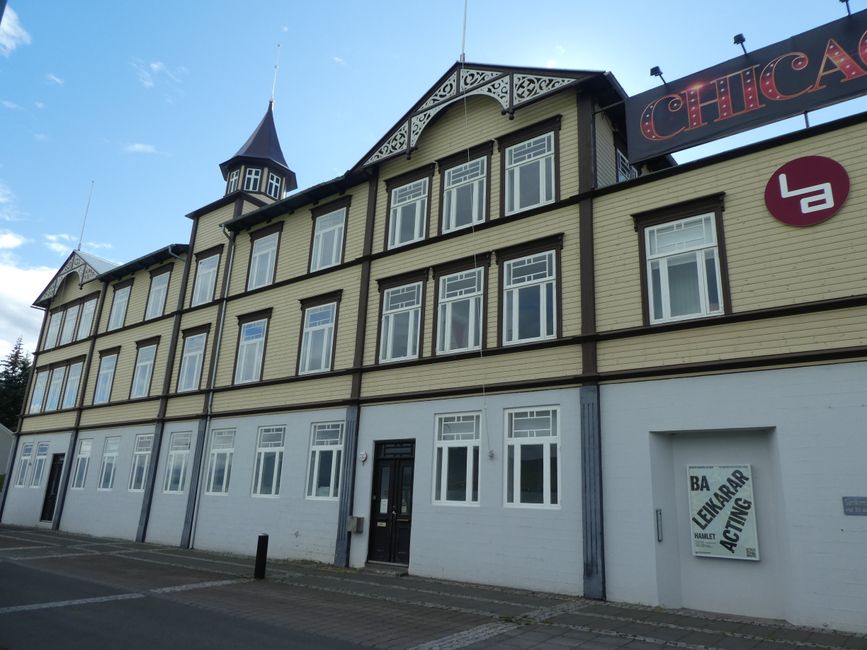
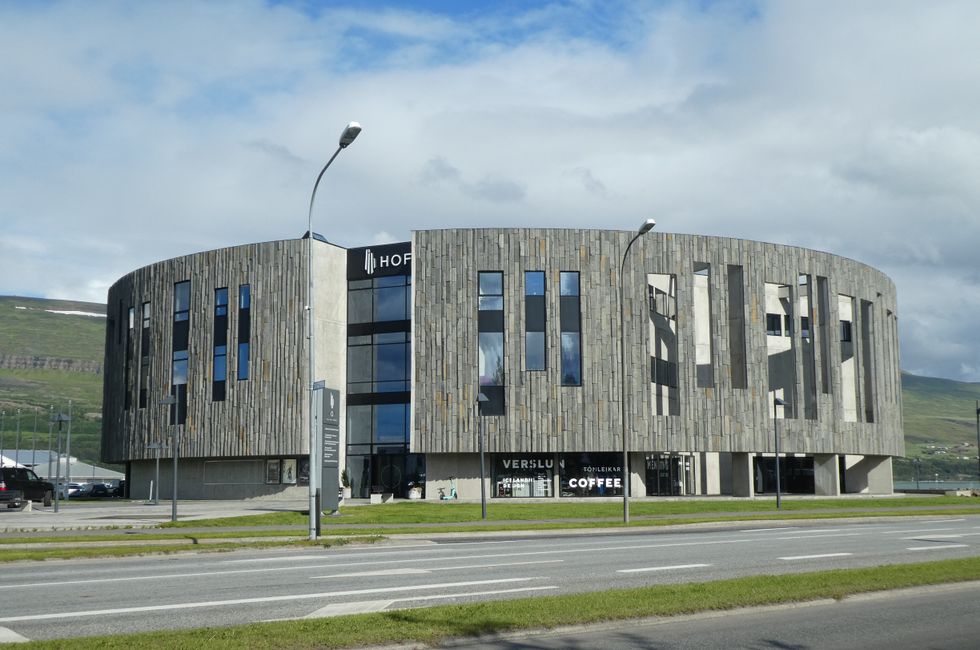
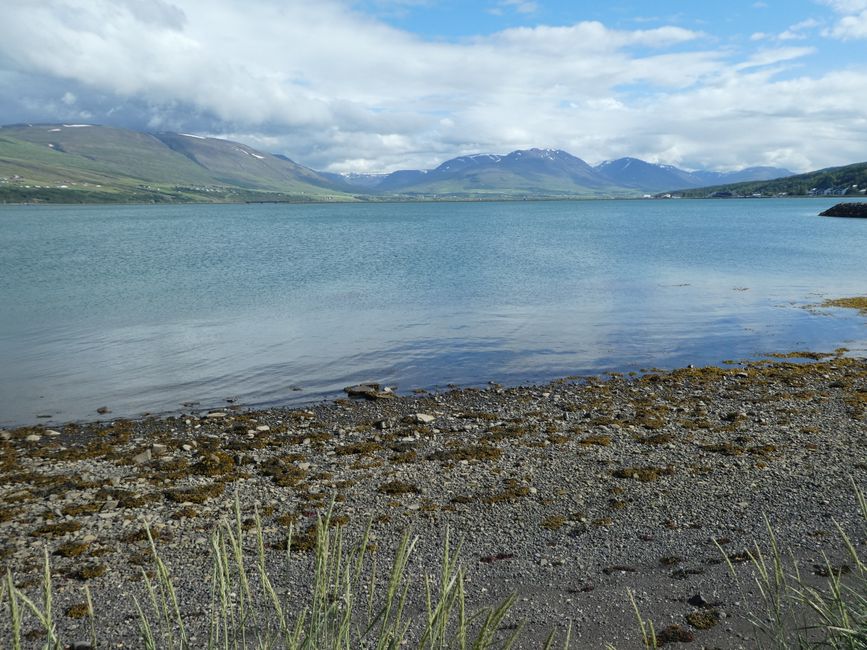
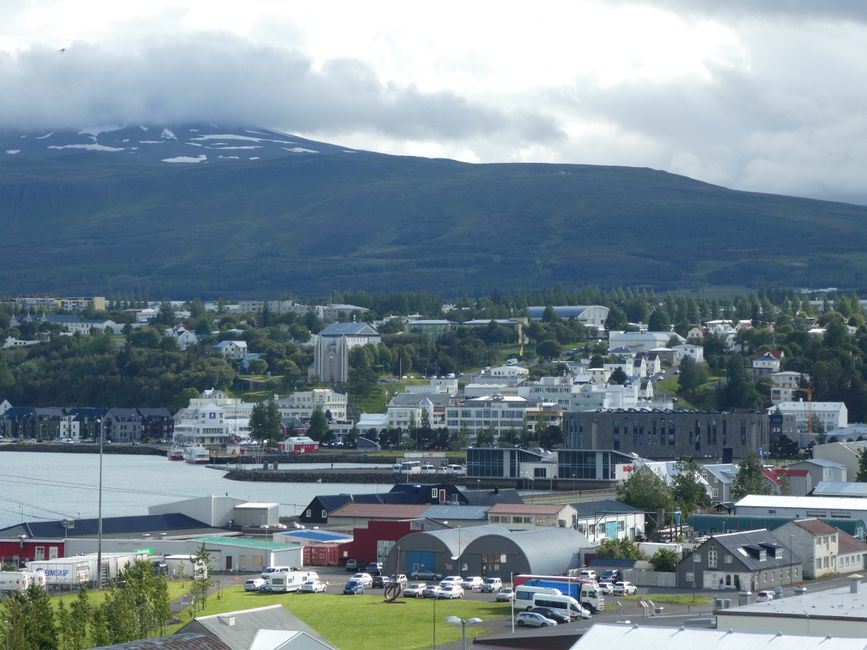
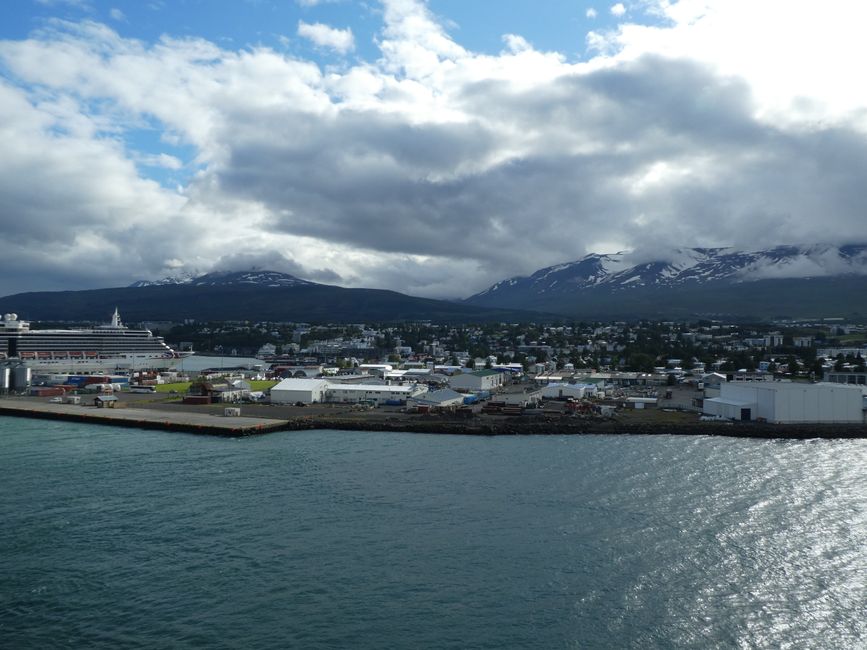

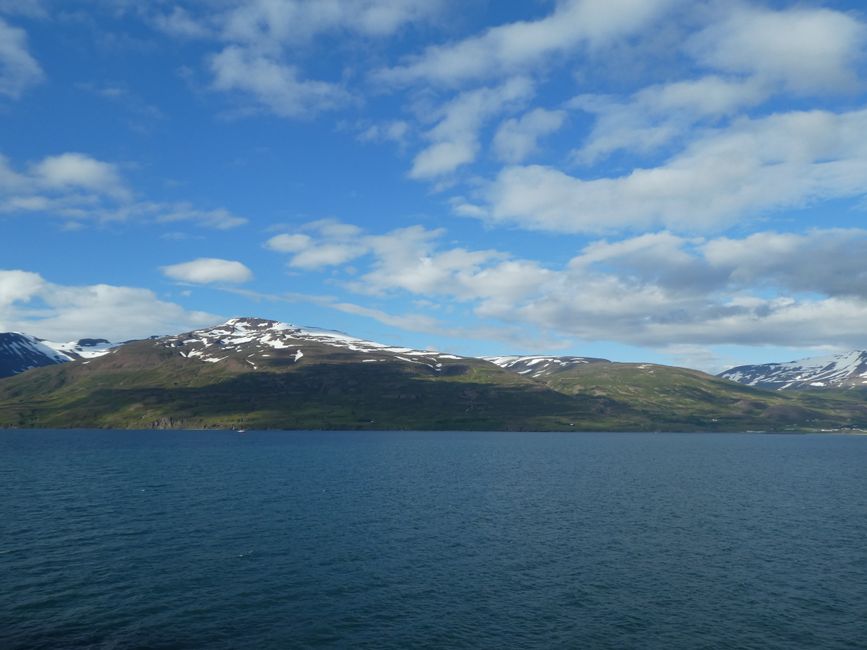
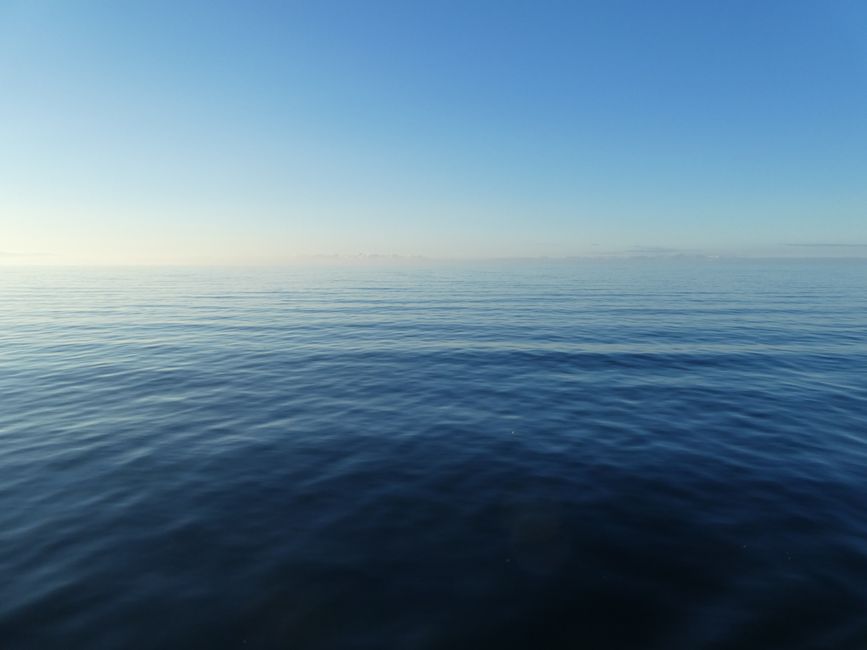
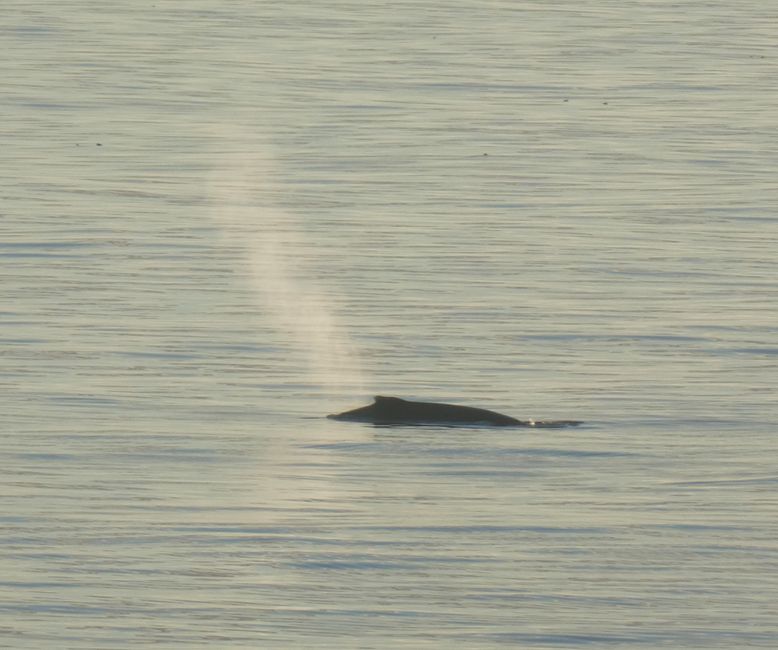
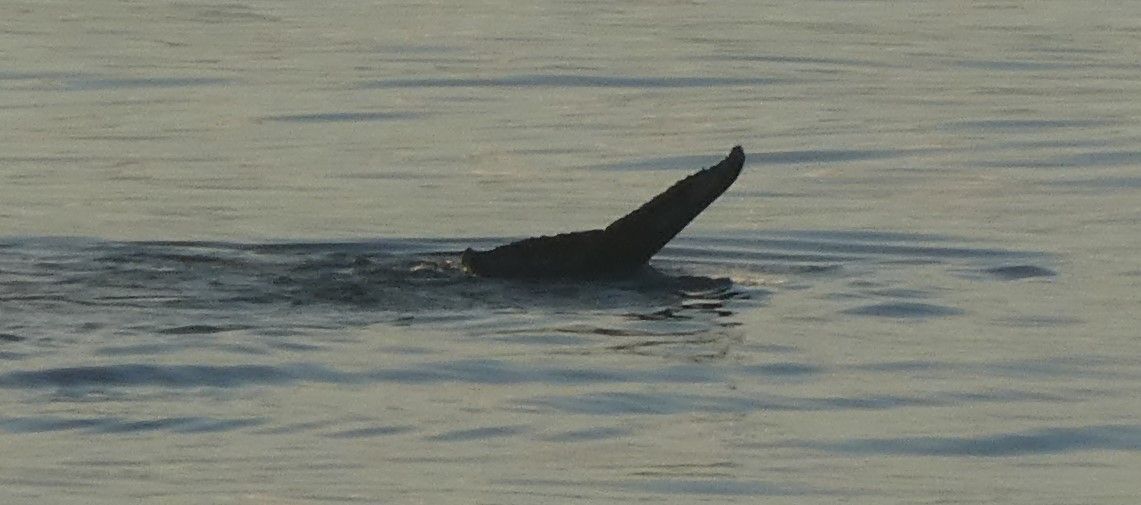
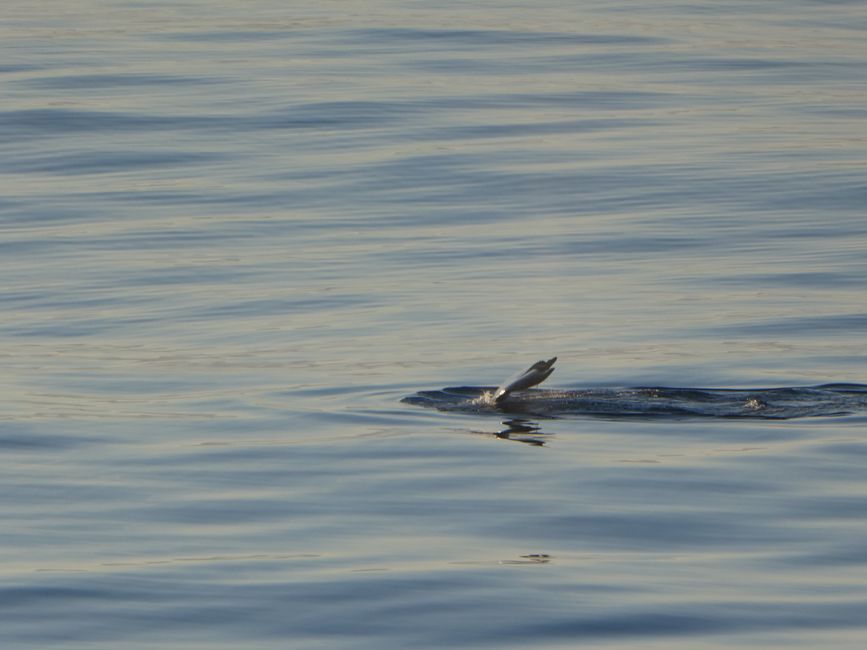
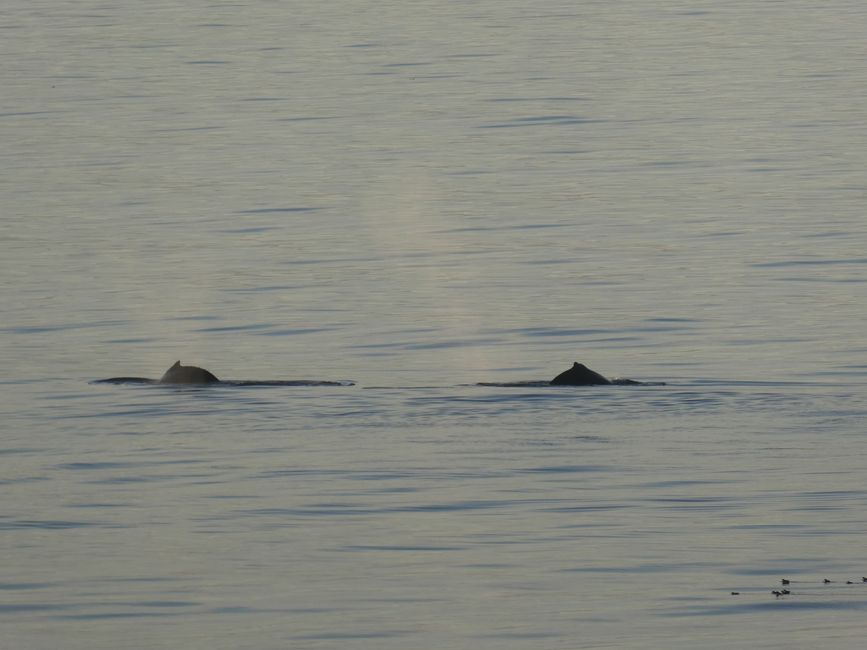

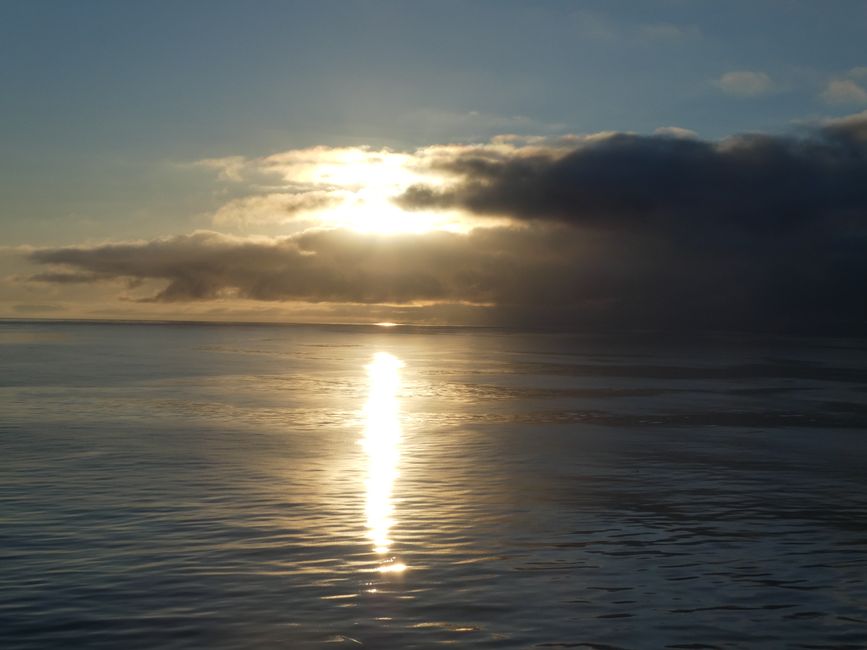
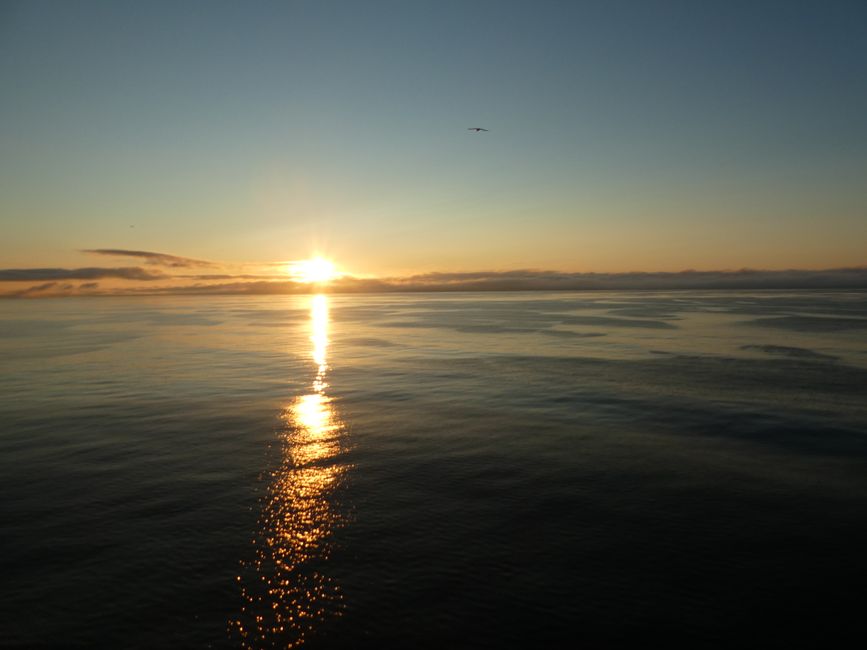
Wɔ Nudɔdɔ na Nyadzɔdzɔgbalẽ
Our second stop in Iceland was the city of Akureyri in the northern part of the island.

Our excursion started here in the morning. First, we went to Godafoss, the Waterfall of the Gods. In the year 1000, pagan statues were submerged in the raging waters here after the adoption of Christianity as the state religion.

The waterfall is 15 meters high, but particularly wide.

It is a very popular tourist destination. Several buses, including those from cruise ships, made a stop here.

Next, we continued through the hilly green landscape to Namaskard.

The geothermal area was also very popular among tourists.

It was steaming and bubbling, offering a beautiful variety of colors.

In the past, sulfur was extracted here, which was needed on the European continent for gunpowder production.

We then moved on to some other rock formations: we visited Dimmuborgir.

Here, approximately 2000-year-old lava forms bizarre shapes.

Several well-developed paths lead through the rocks.

From a viewing platform, there was also a good view of Lake Myvatn, the Midge Lake. With an area of almost 40 km², it is the fourth largest lake in Iceland.

Since 1974, this area has been a nature reserve to protect the waterbirds that stop here.

We then made a final stop at Skutustadagigar. These craters form a green hill landscape that extends into a lake.

When we arrived, it was raining, so our tour guide kept this stop quite short.

However, our tour guide had already explained on the bus what to do in Iceland when it rains: wait for 5 minutes.

Indeed, the rain disappeared as quickly as it had come (which seemed to surprise our tour guide a bit).

So, we were able to enjoy the view, even if it was mostly from the warmer indoor areas, with the weather turning sunny.

After having coffee and cake at a hotel nearby, which was very idyllically situated on a hill in the middle of nowhere, we returned to Akureyri.

In the city, we took a short walk that led us from the cultural center Hof to the city center.

We strolled along the - rather short - pedestrian zone Hafnarstraeti, which has several cafes, restaurants, and souvenir shops.

A staircase at the end of the street led up to Akureyrarkirkja. The church was designed by the Icelandic state architect Gudjon Samuelsson.

500 meters further is the city's Botanical Garden.

It is home to over 6000 foreign and 400 indigenous plants.

The climate seems to be very favorable here in the summer, as we were greeted by a profusion of flowers.

We particularly liked the blue poppy that we saw in the garden.

Our way back took us past the old school.

A short distance away, there is a small path leading down to the town. This path is known as the 'Path of Destruction'. In the past, it was used by students seeking entertainment to reach the dance hall down by the water. The more respectable classmates gave the path this name.

However, if you climb up the path, it becomes the 'Path to Education'. Later, a tradition emerged where first-year students would walk up this path on their first tour to reach the school.

To this day, the path bears both names.

We walked along the water back to the harbor and our ship, which was anchored here together with two other cruise ships (which may also explain the many buses at the sights).

We spent the departure from the fjord on deck, even though it had become quite chilly with the cold wind.

In the evening, we could gaze upon a blue sea that was illumined by the sun.

And eventually, some whales appeared, swimming alongside our ship.

The sunset was not until after 11 p.m., so we were able to enjoy the beautiful weather (even if mostly from the warmer indoor areas) for a while longer.

Wɔ Nudɔdɔ na Nyadzɔdzɔgbalẽ
Ŋuɖoɖo
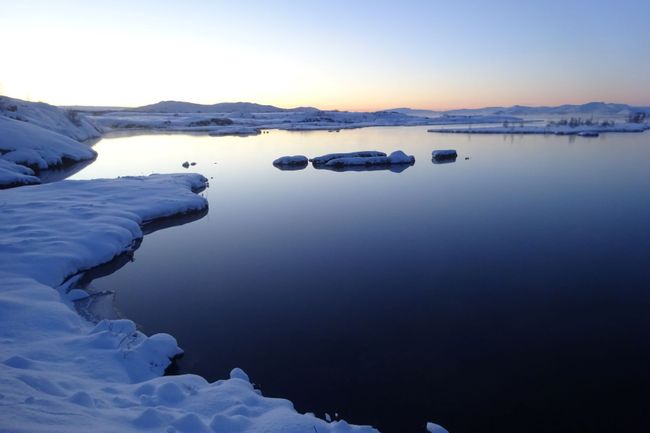
Mɔzɔzɔ ŋuti nyatakakawo Iceland
